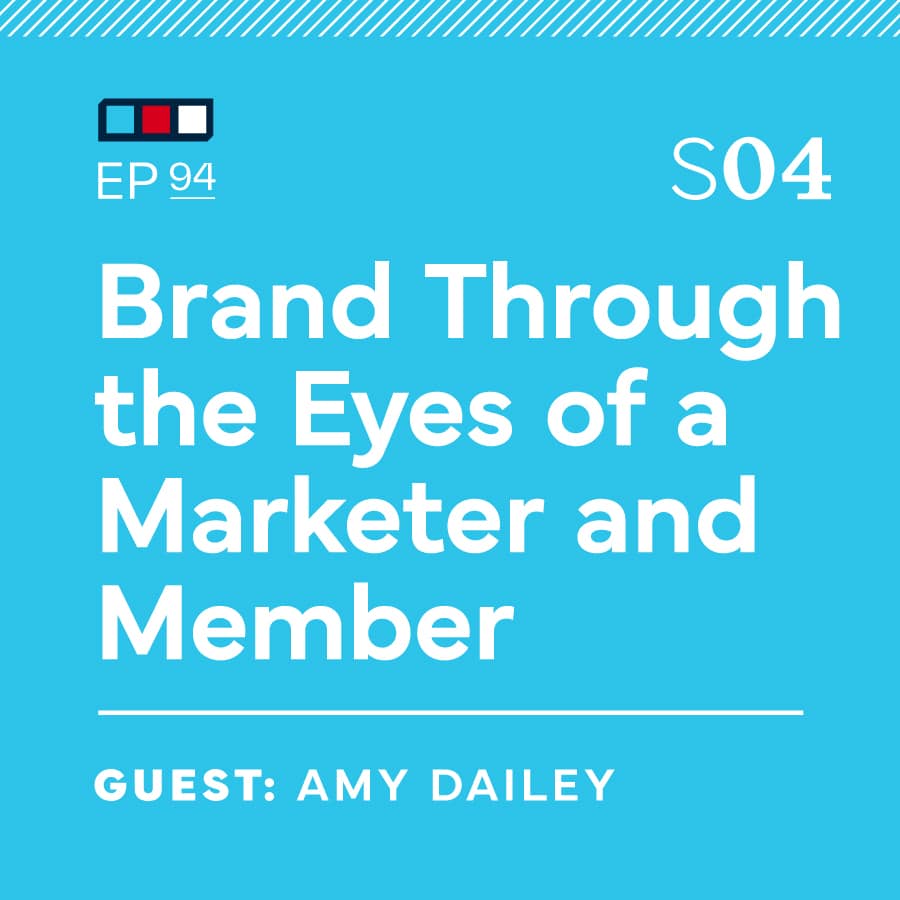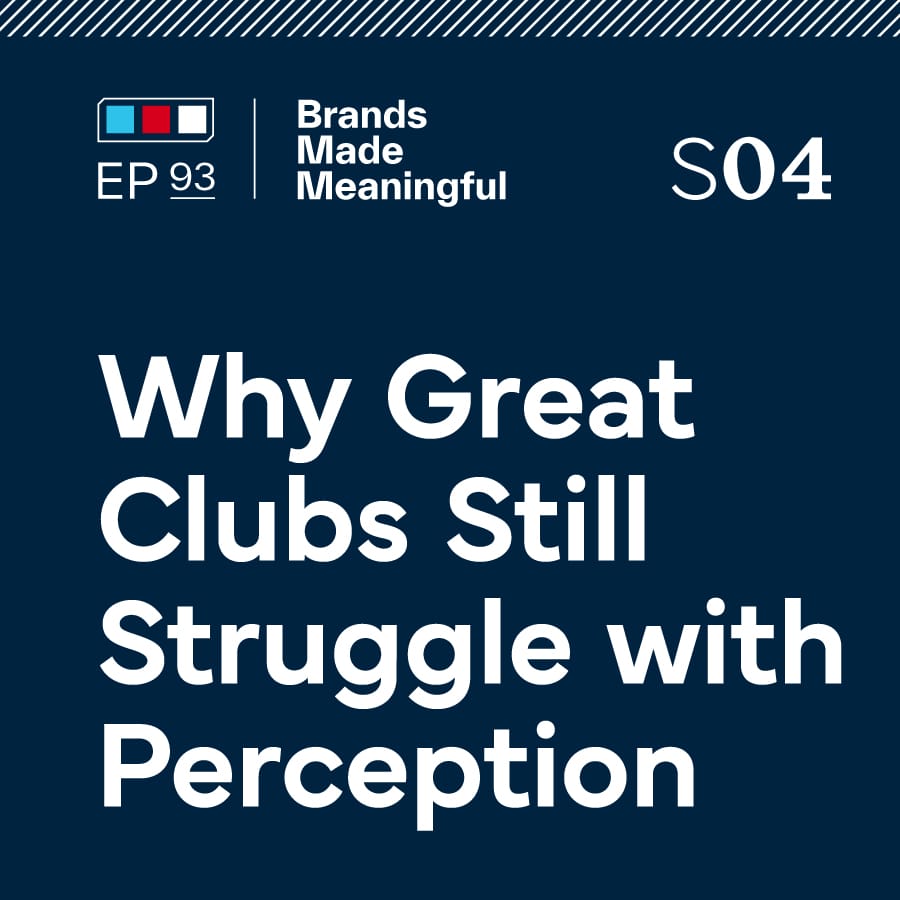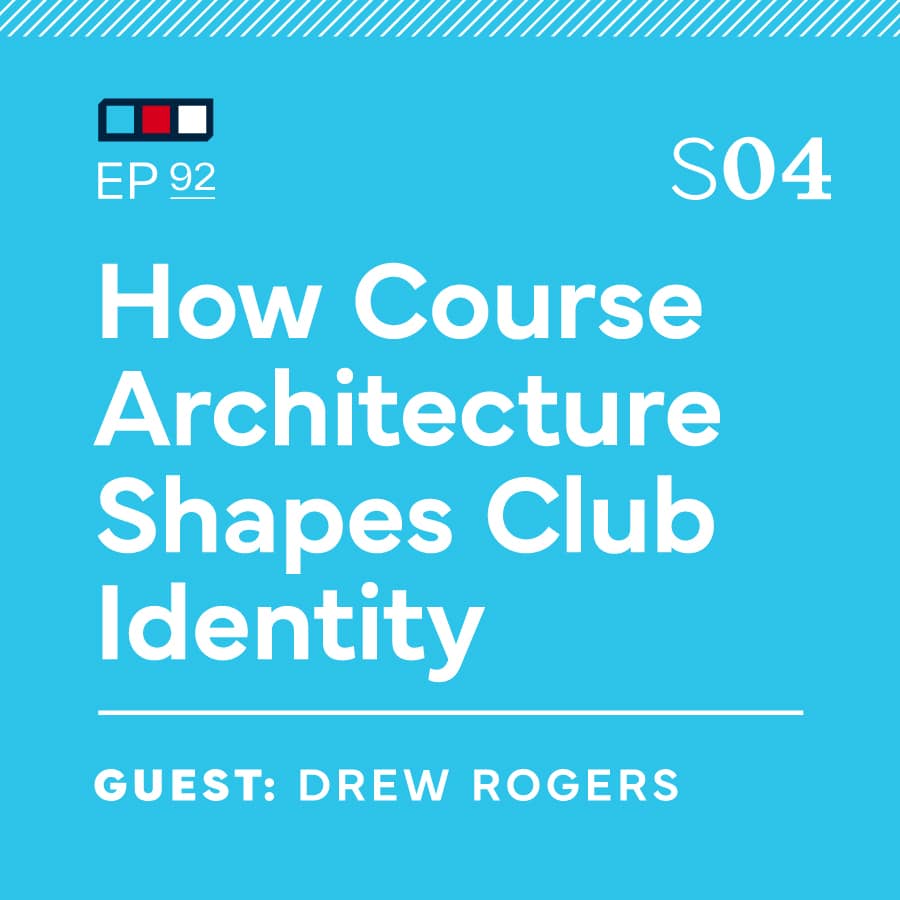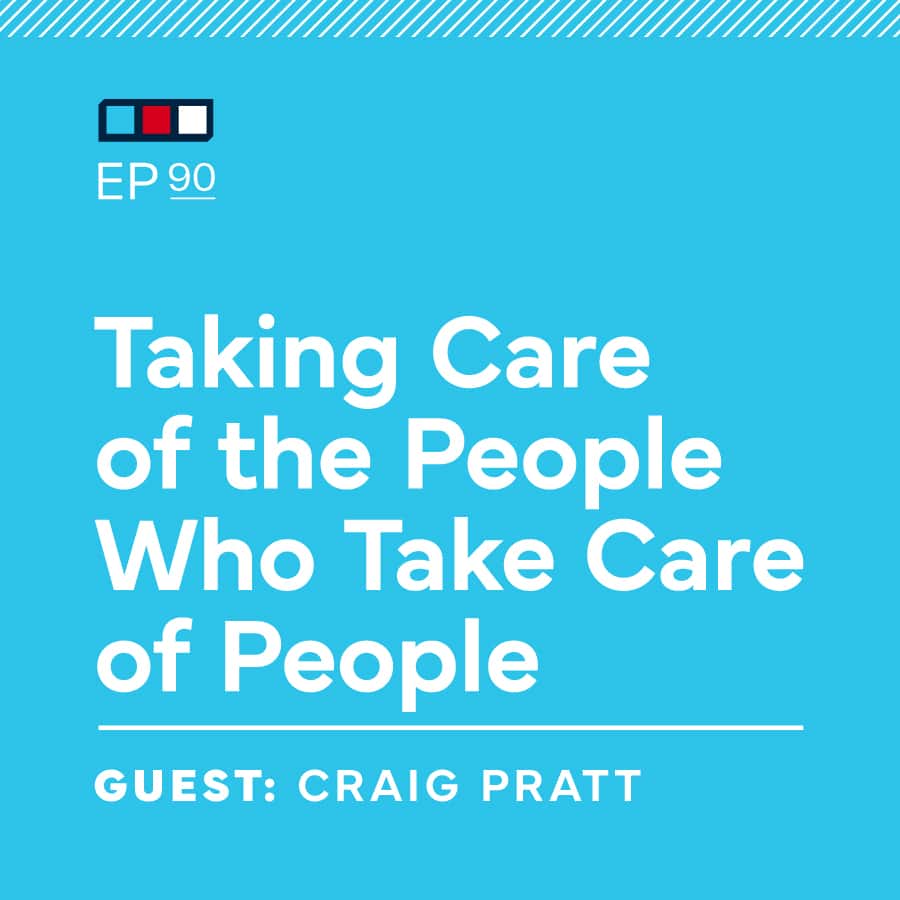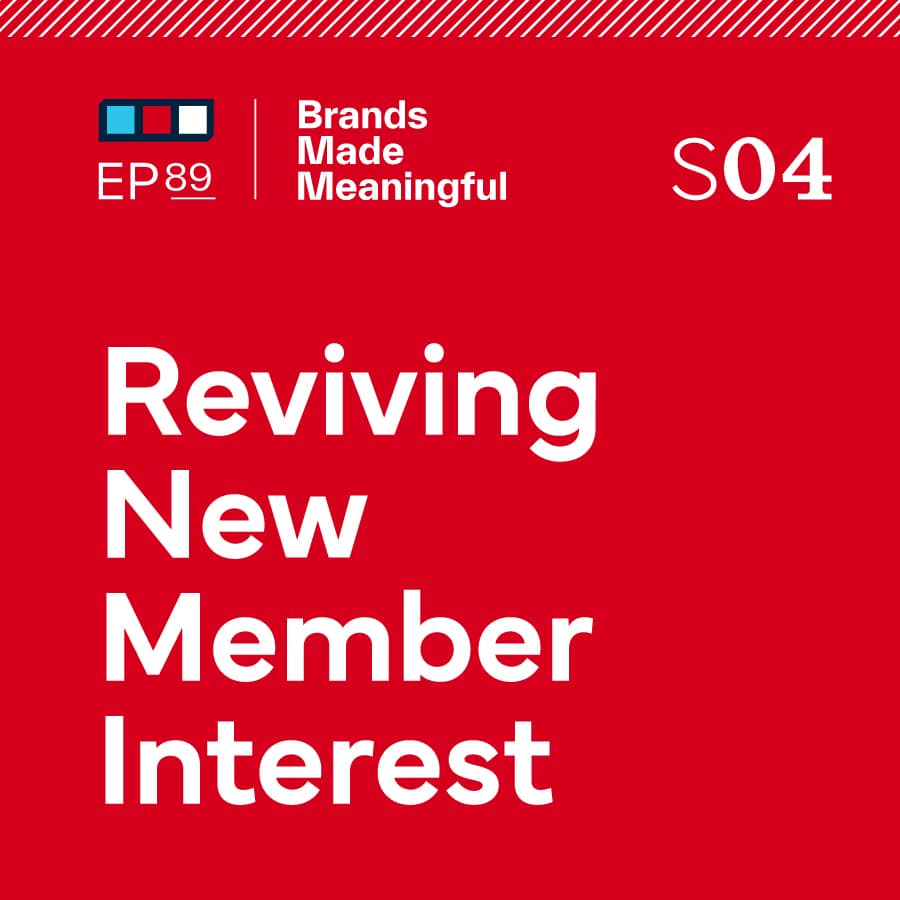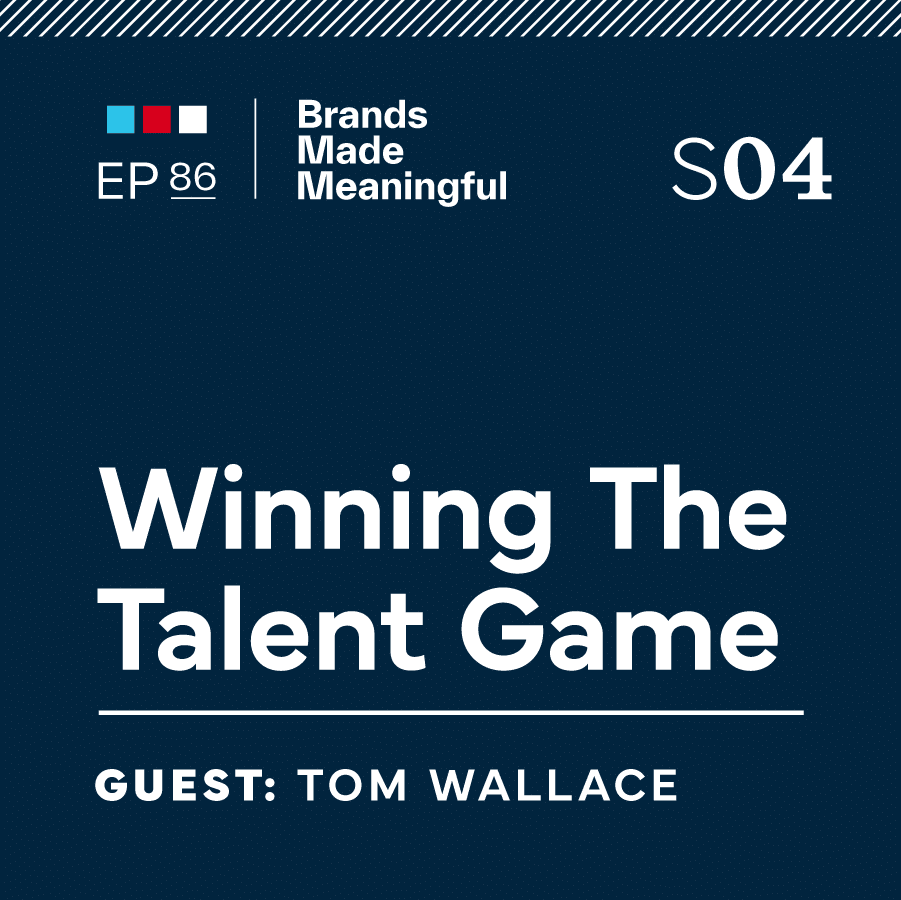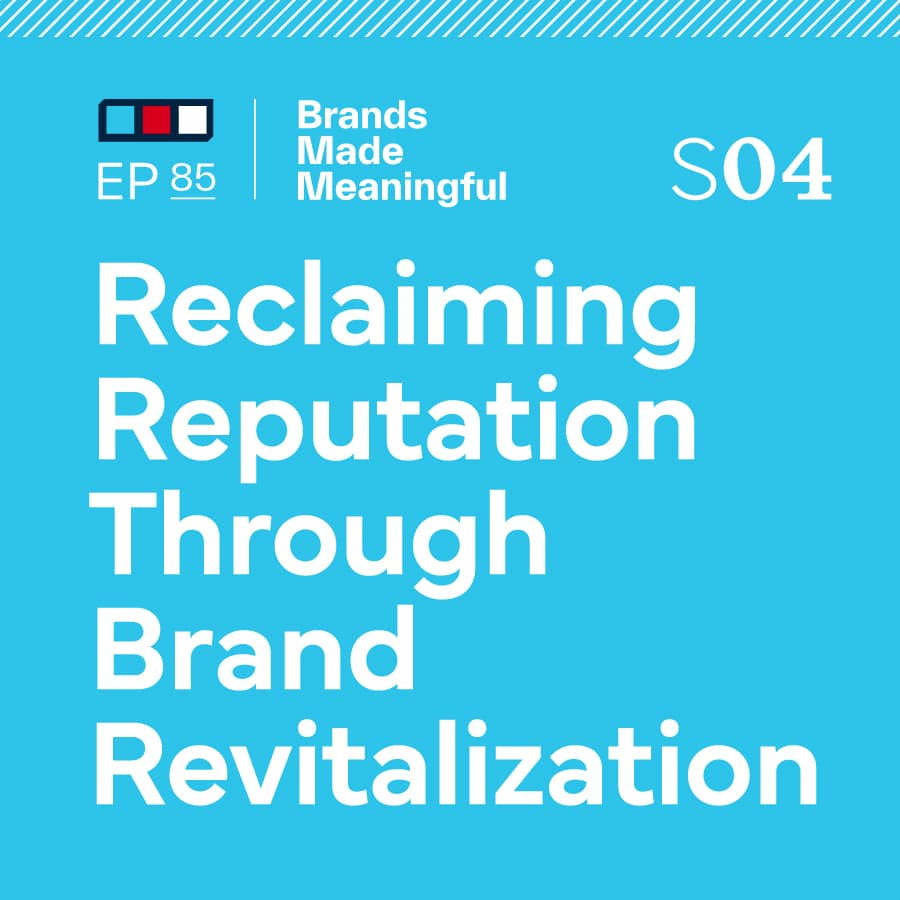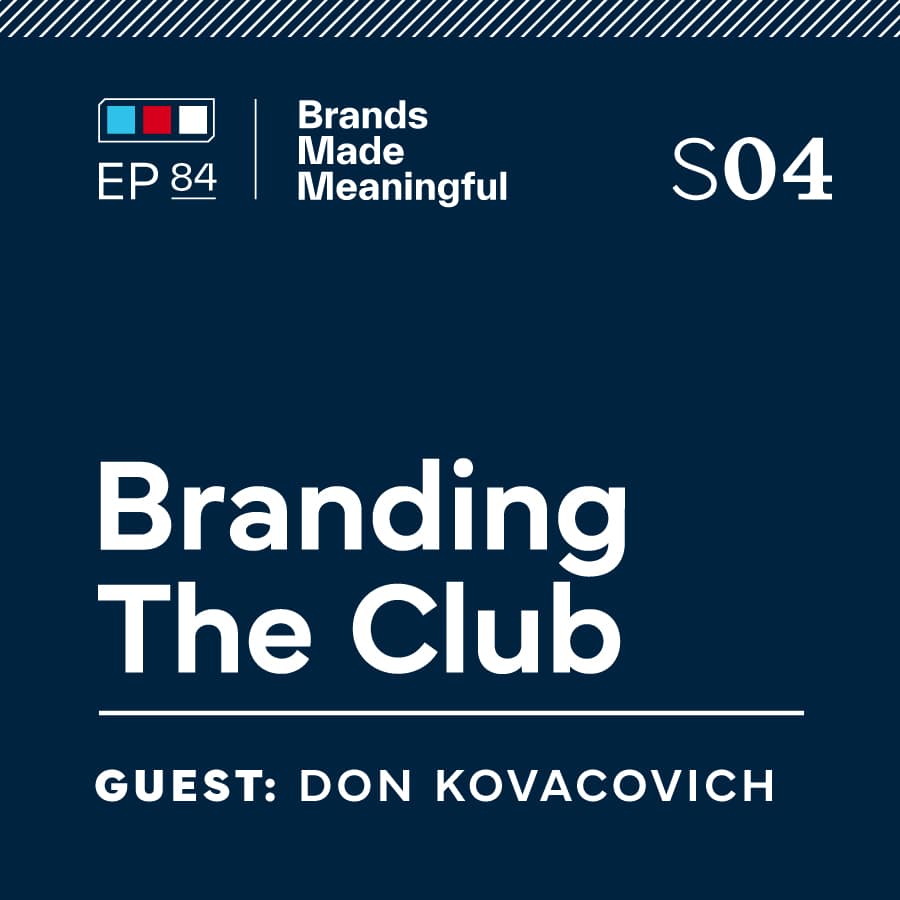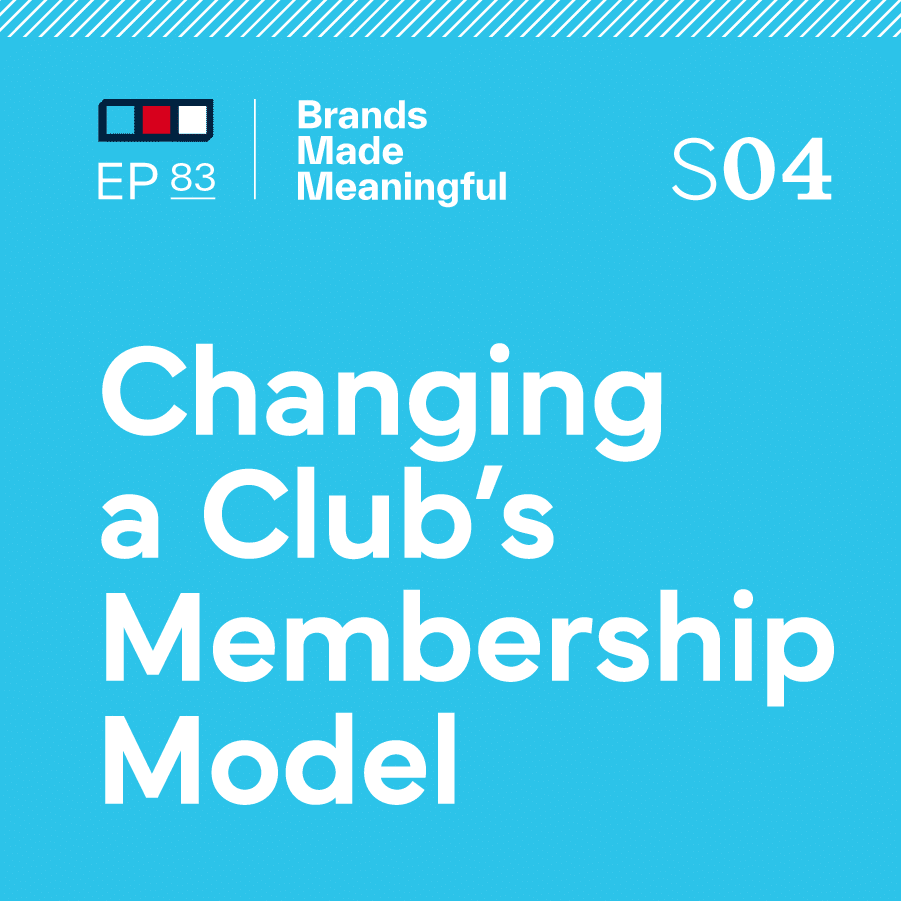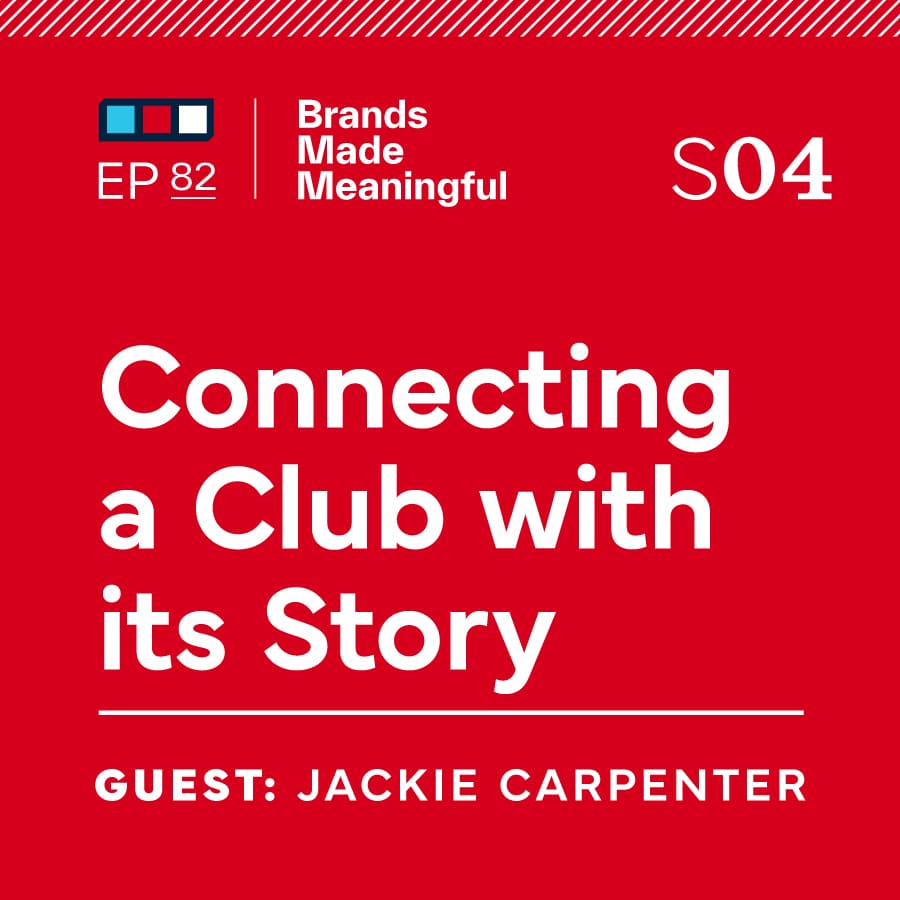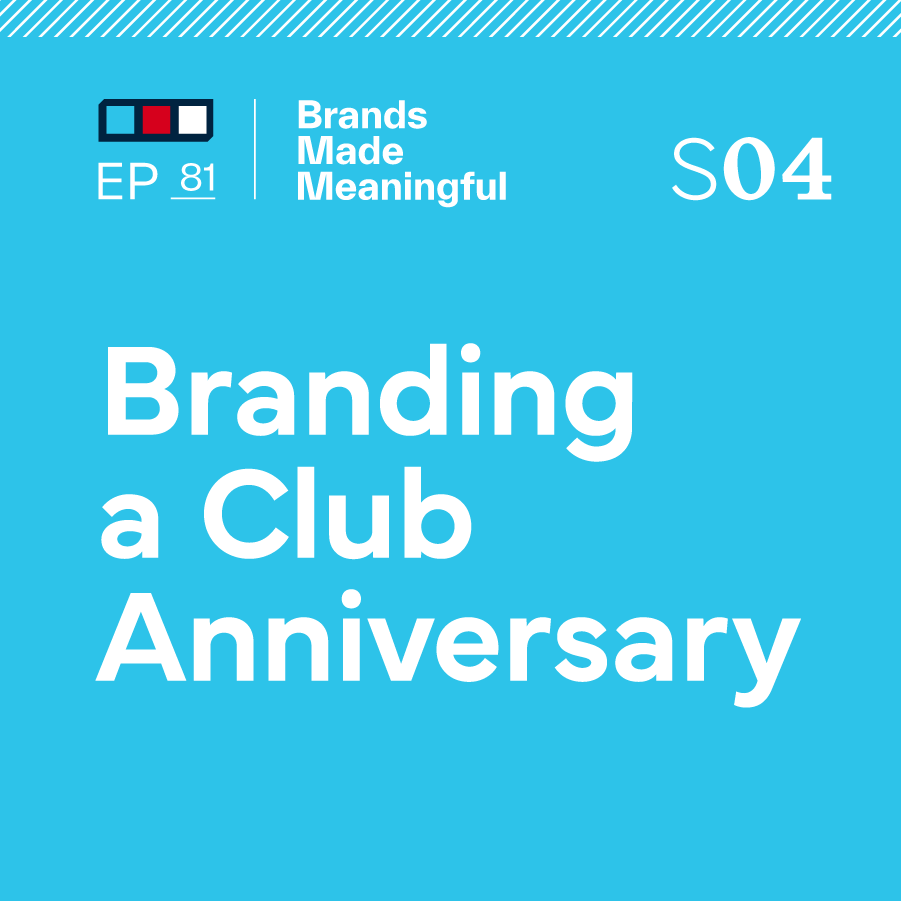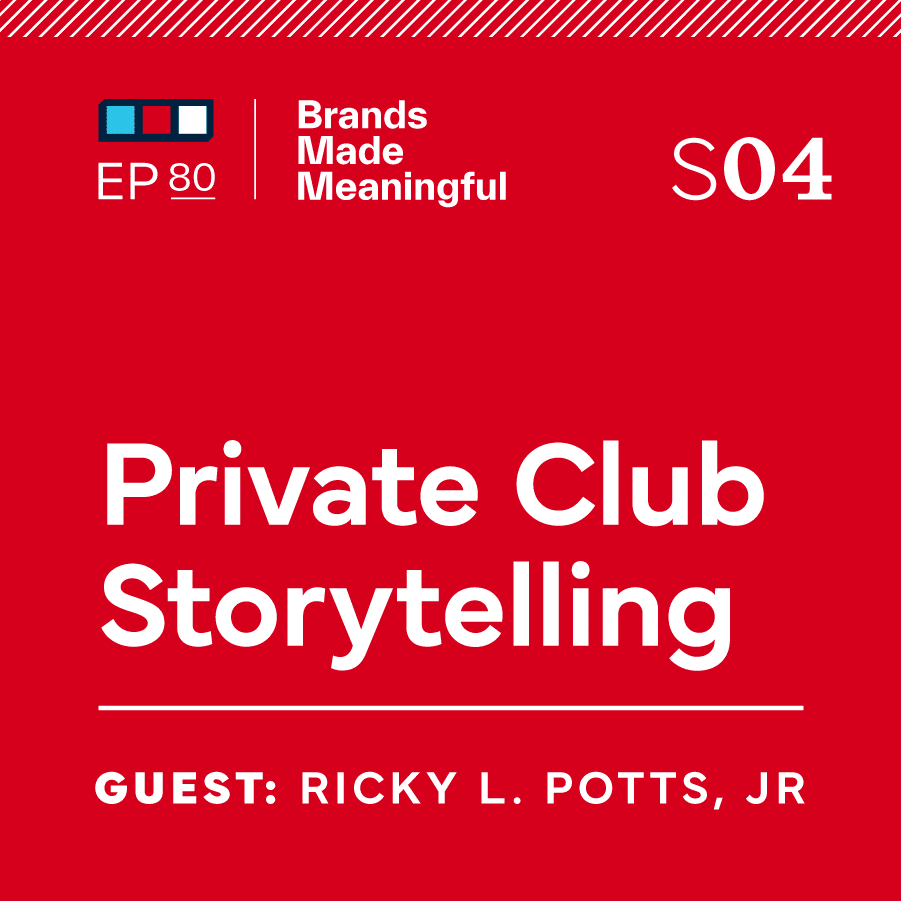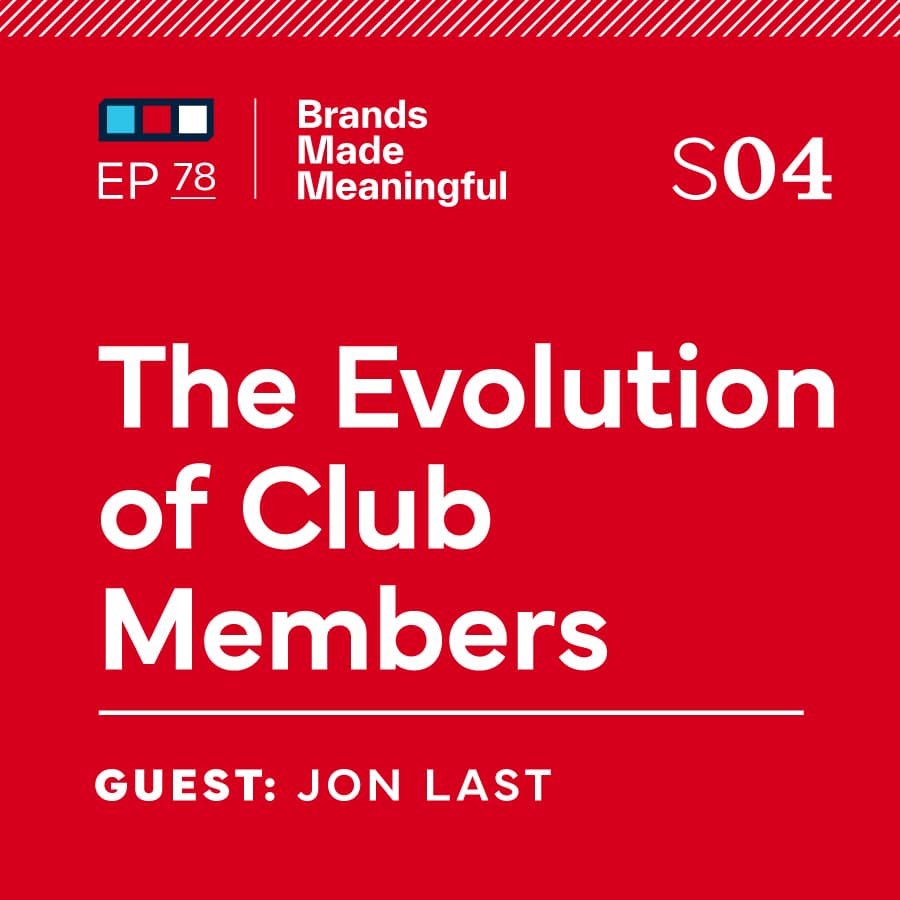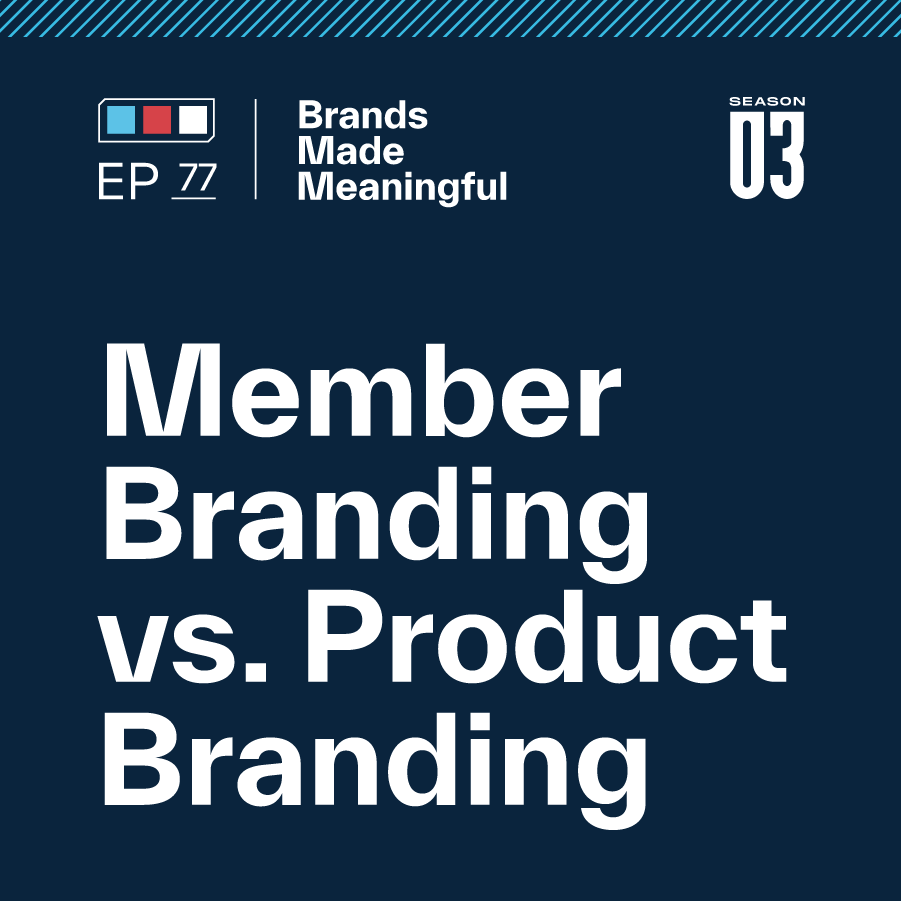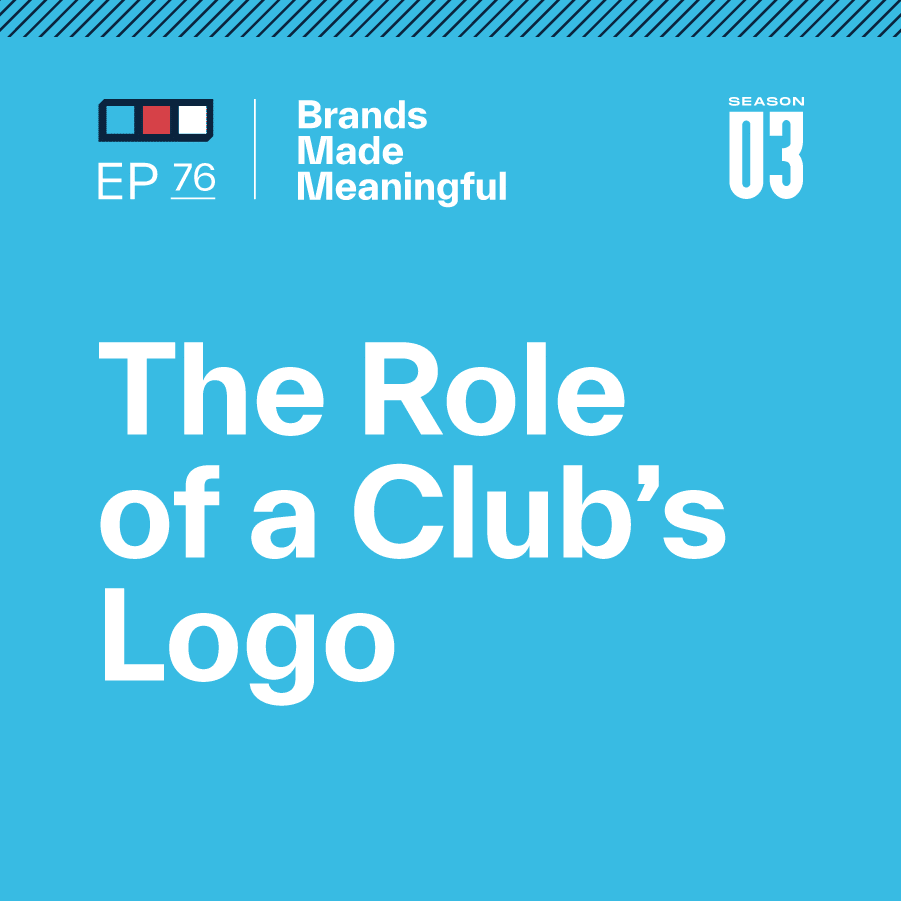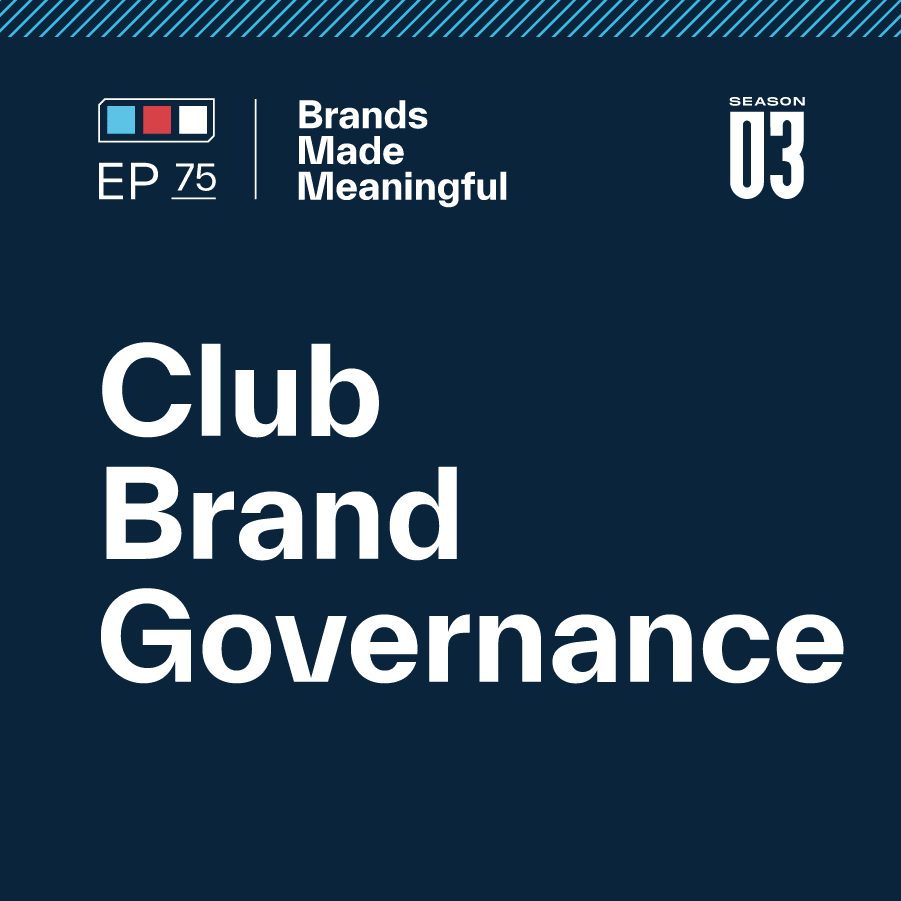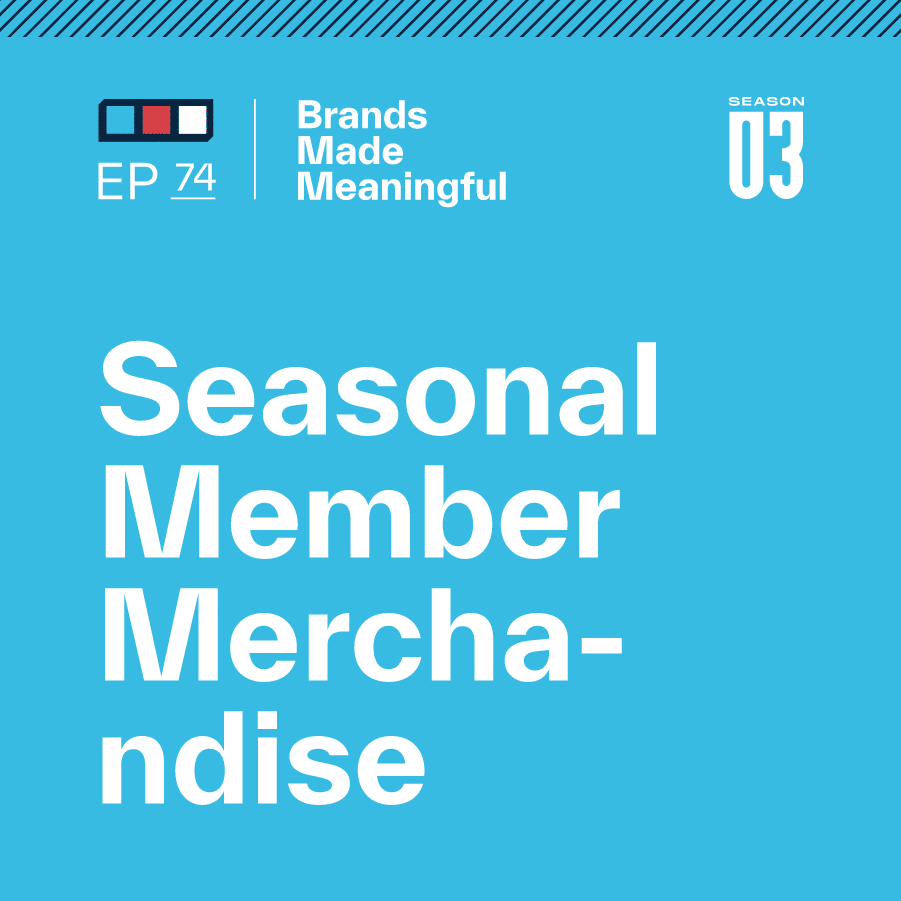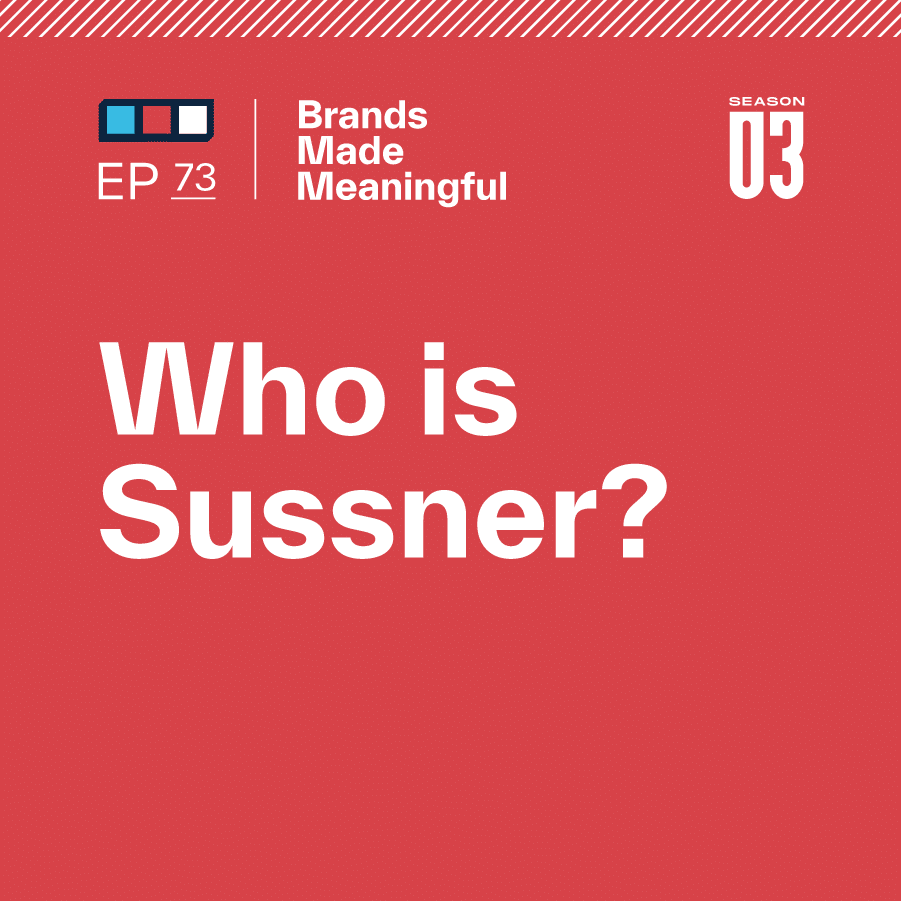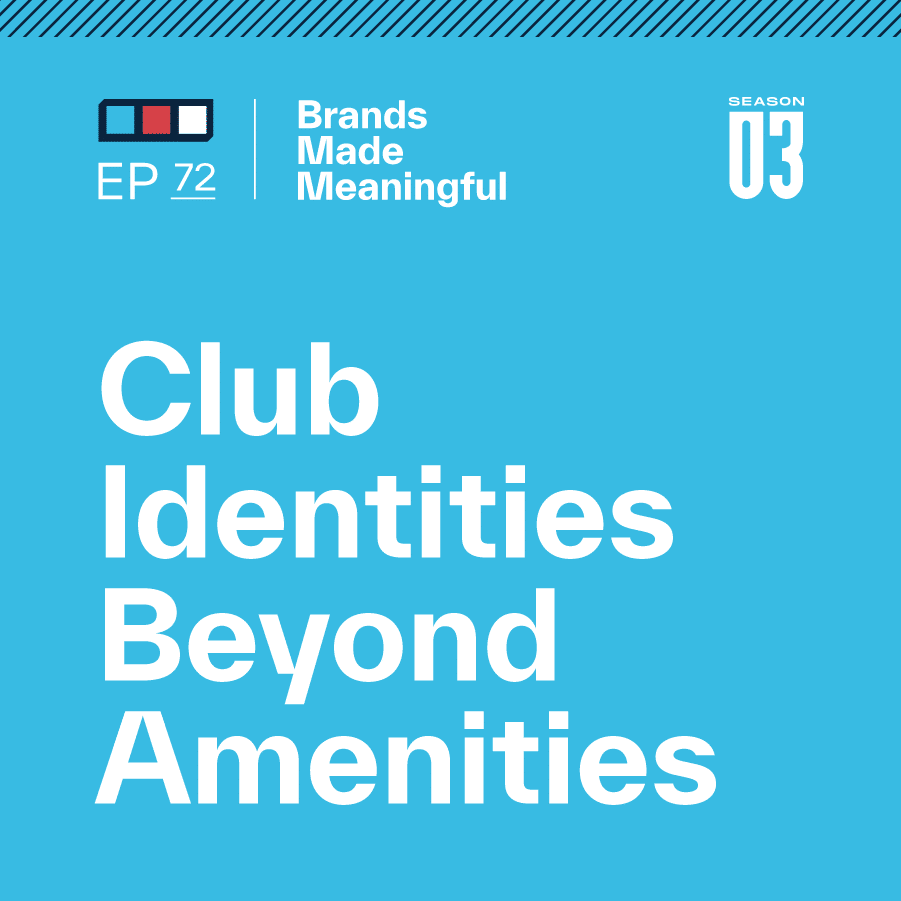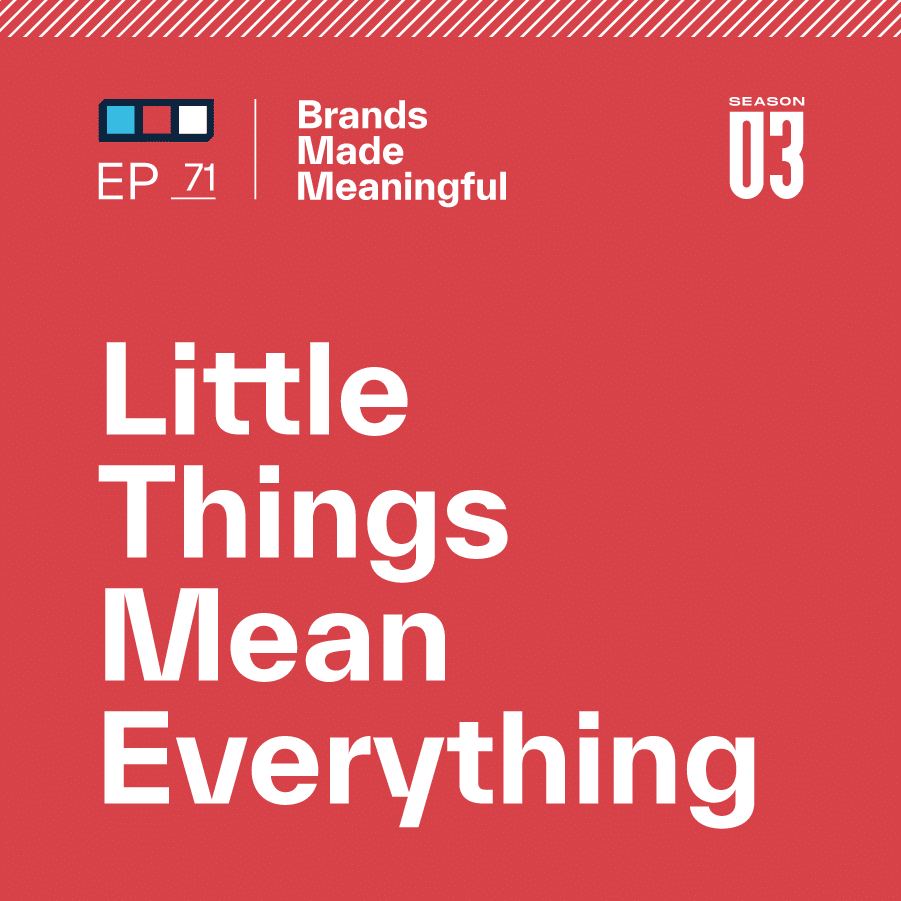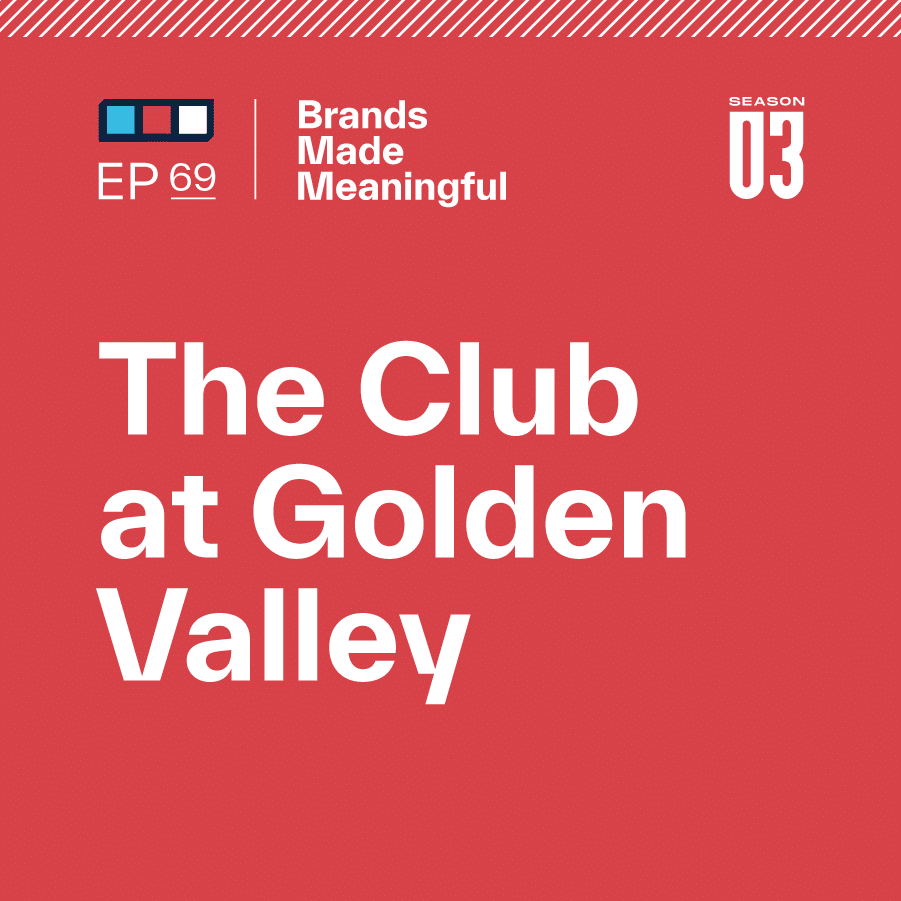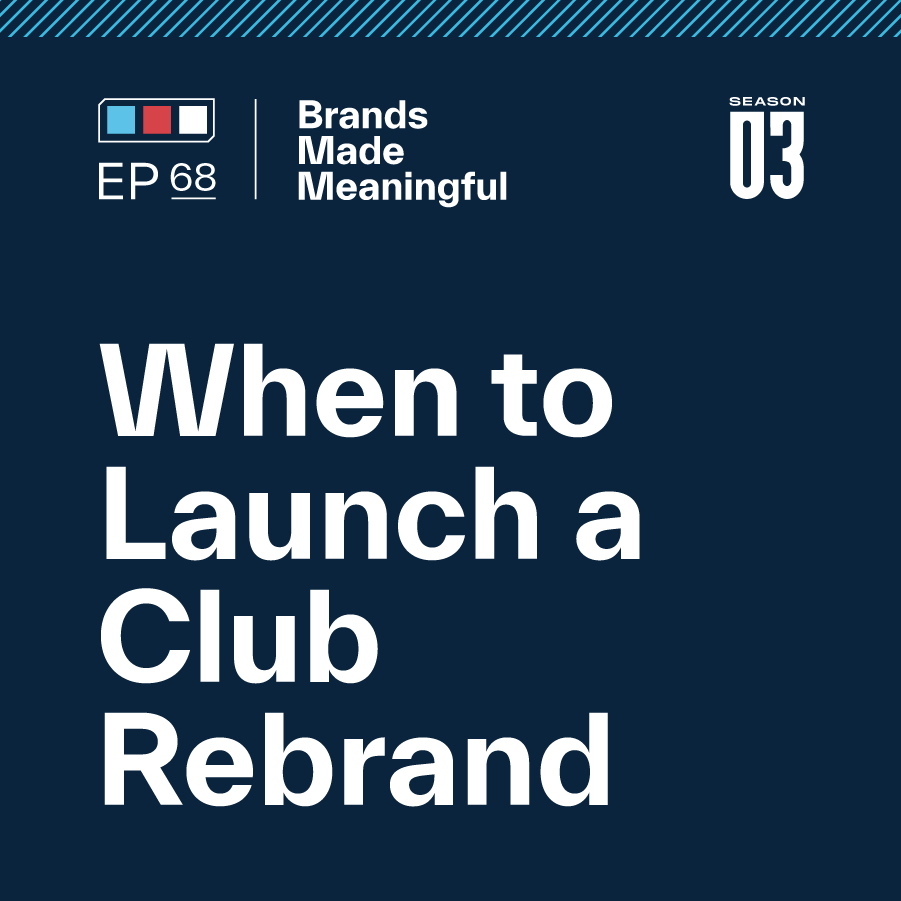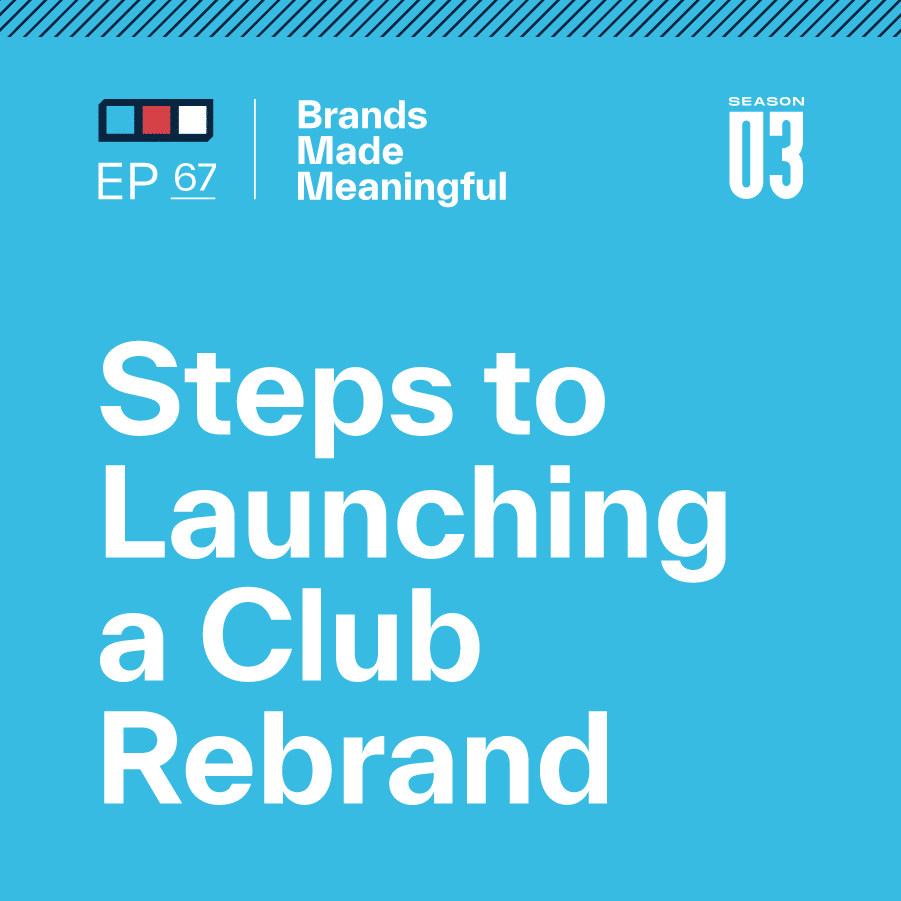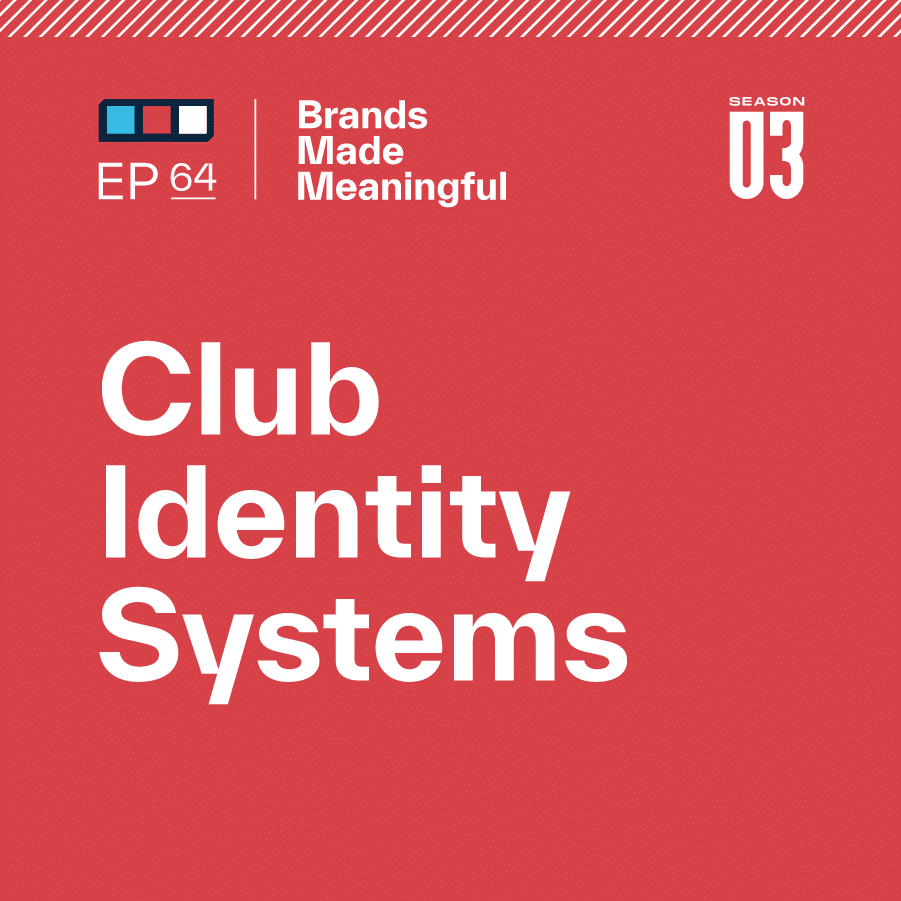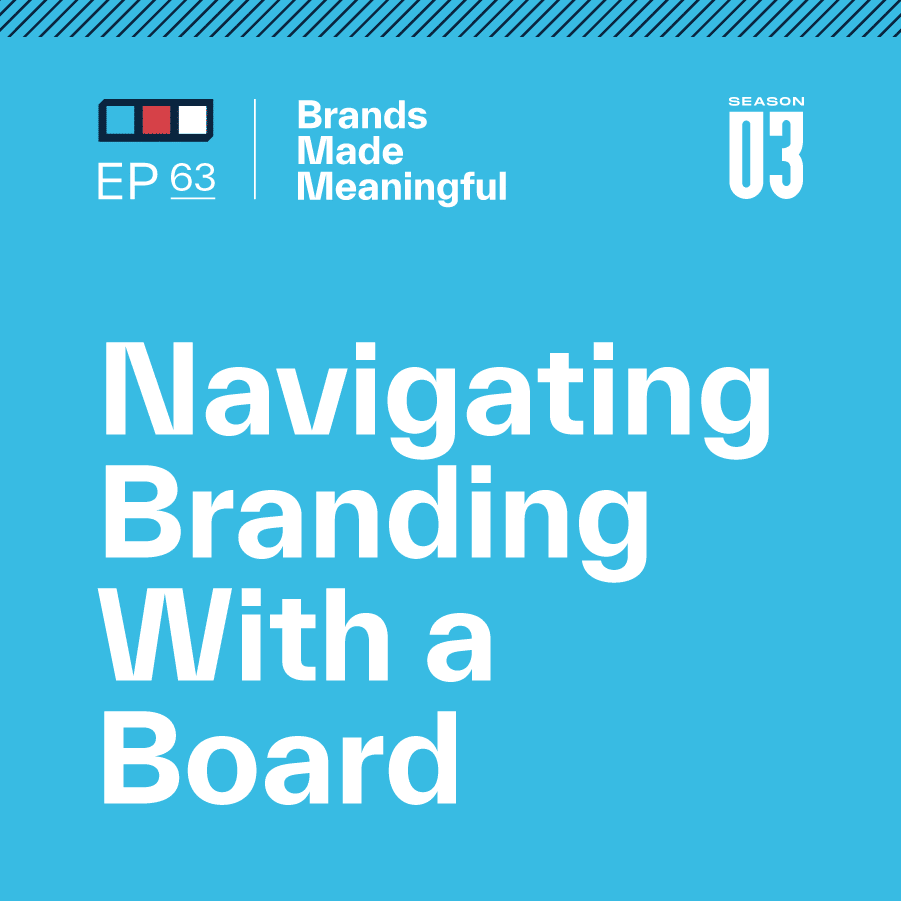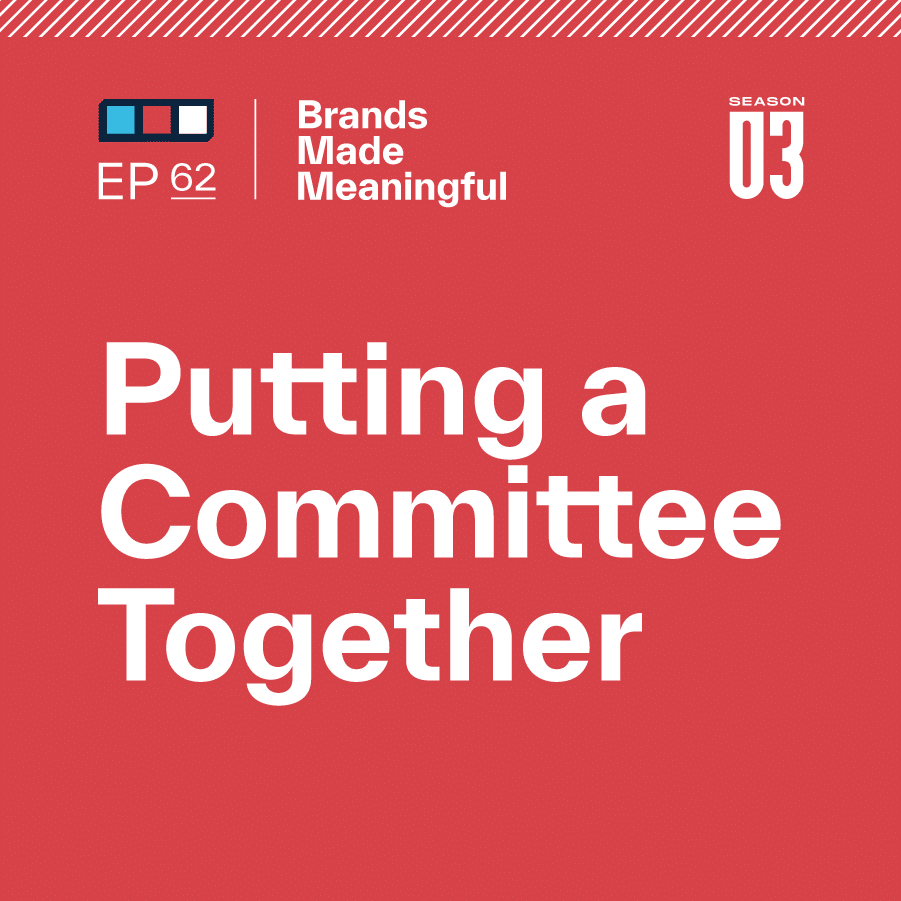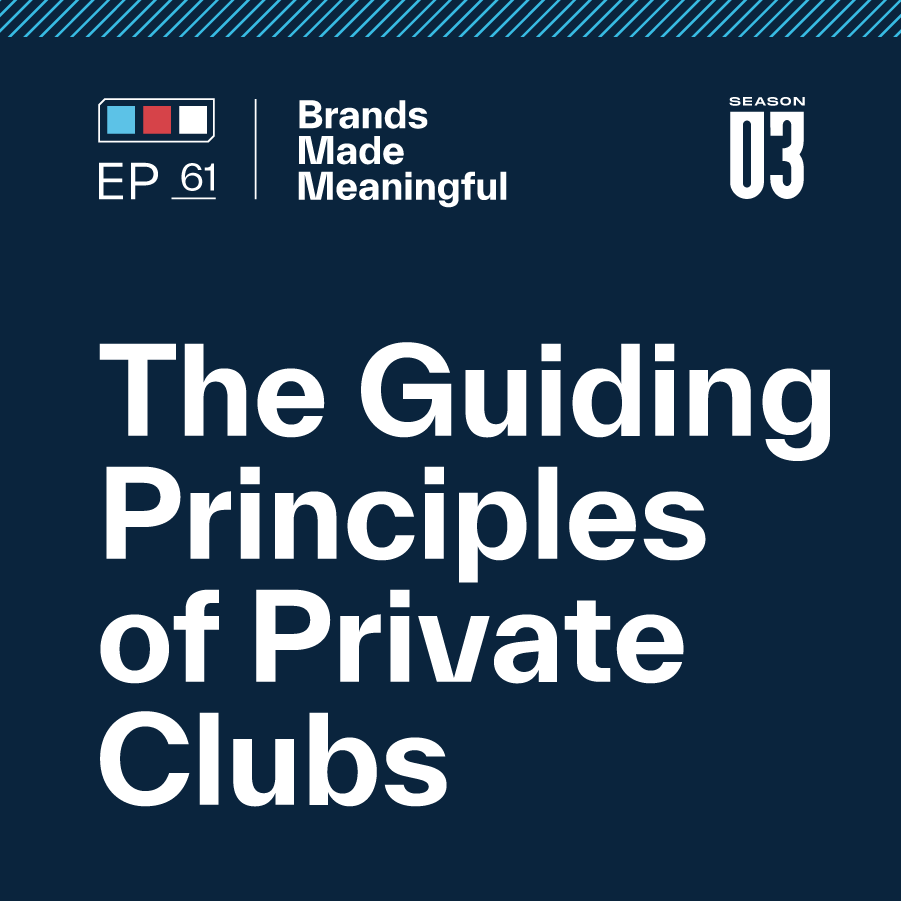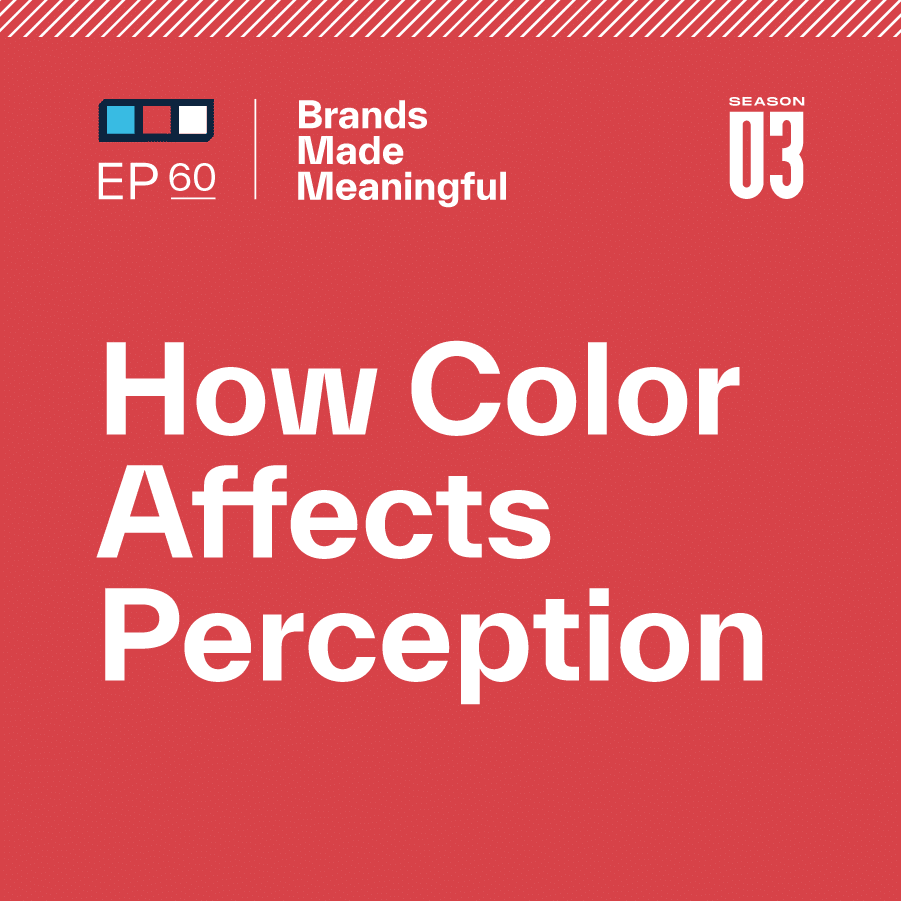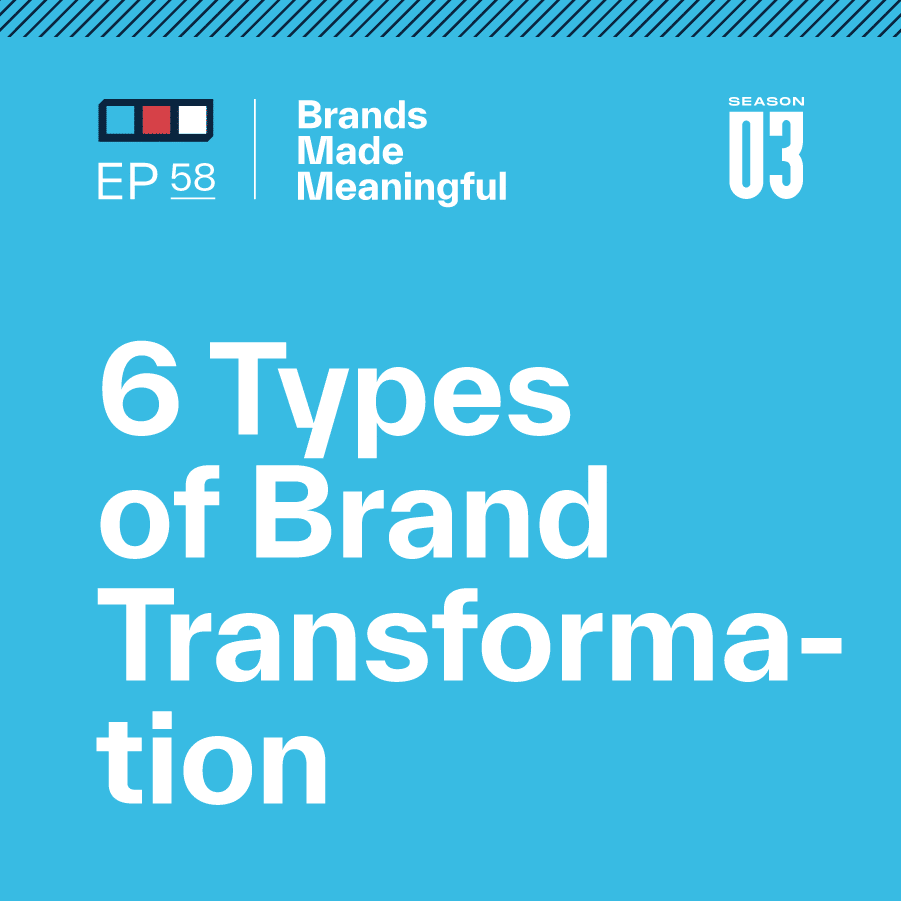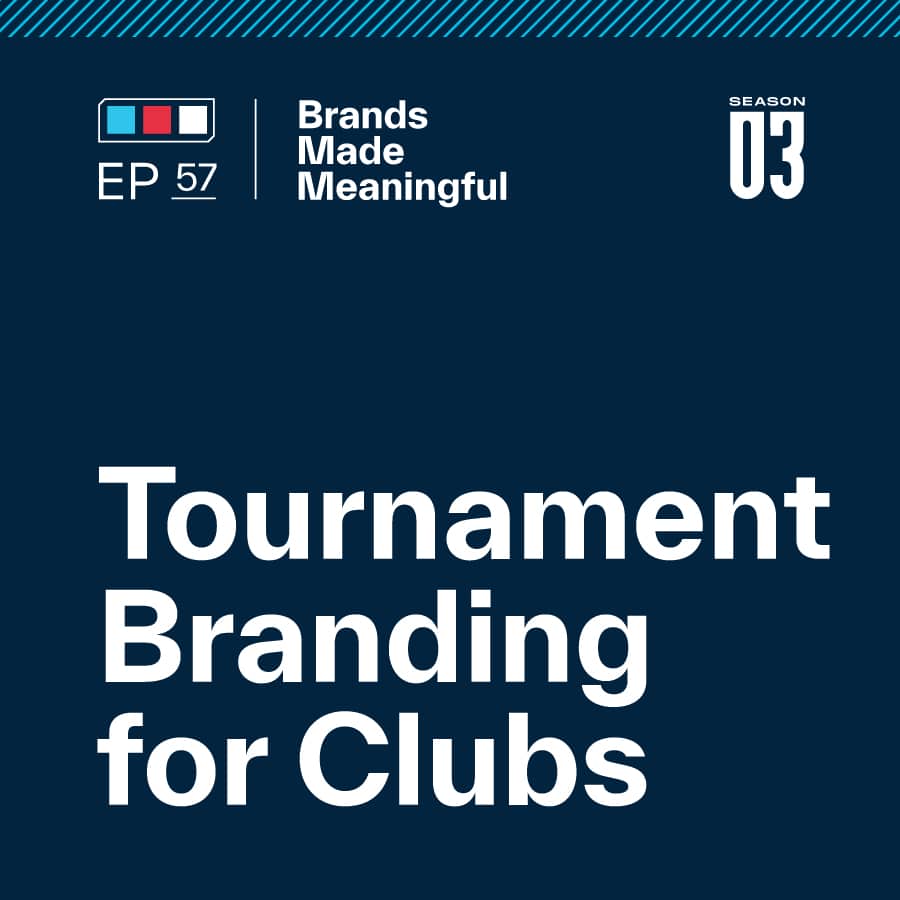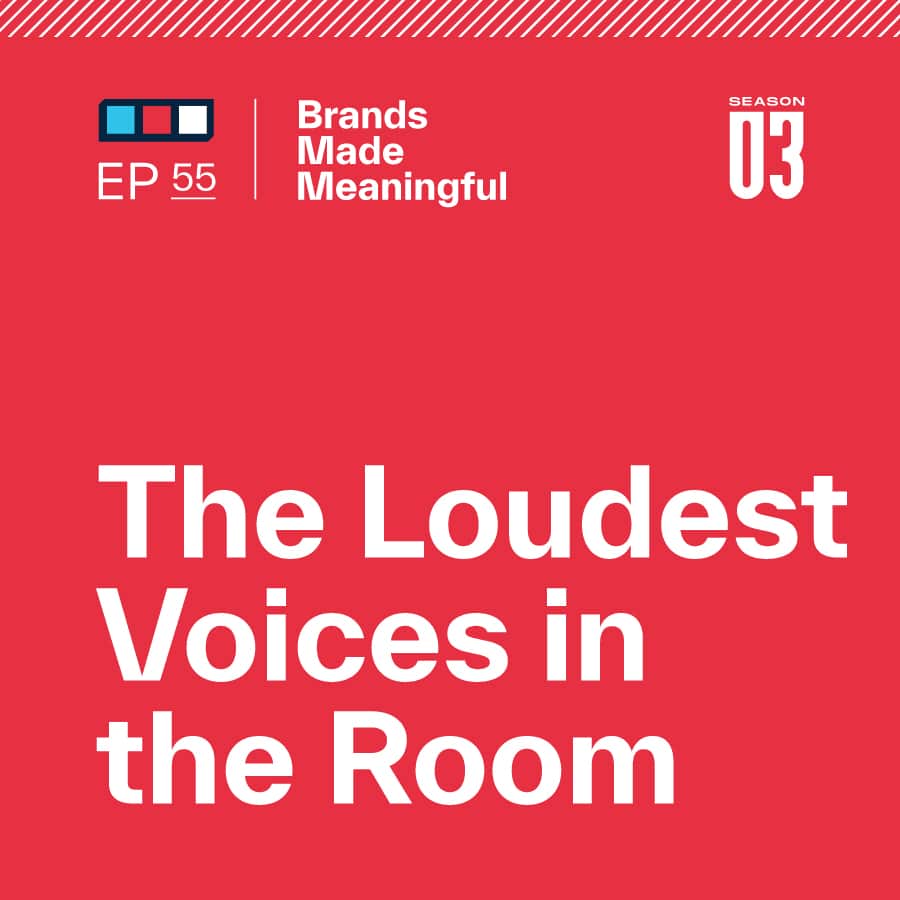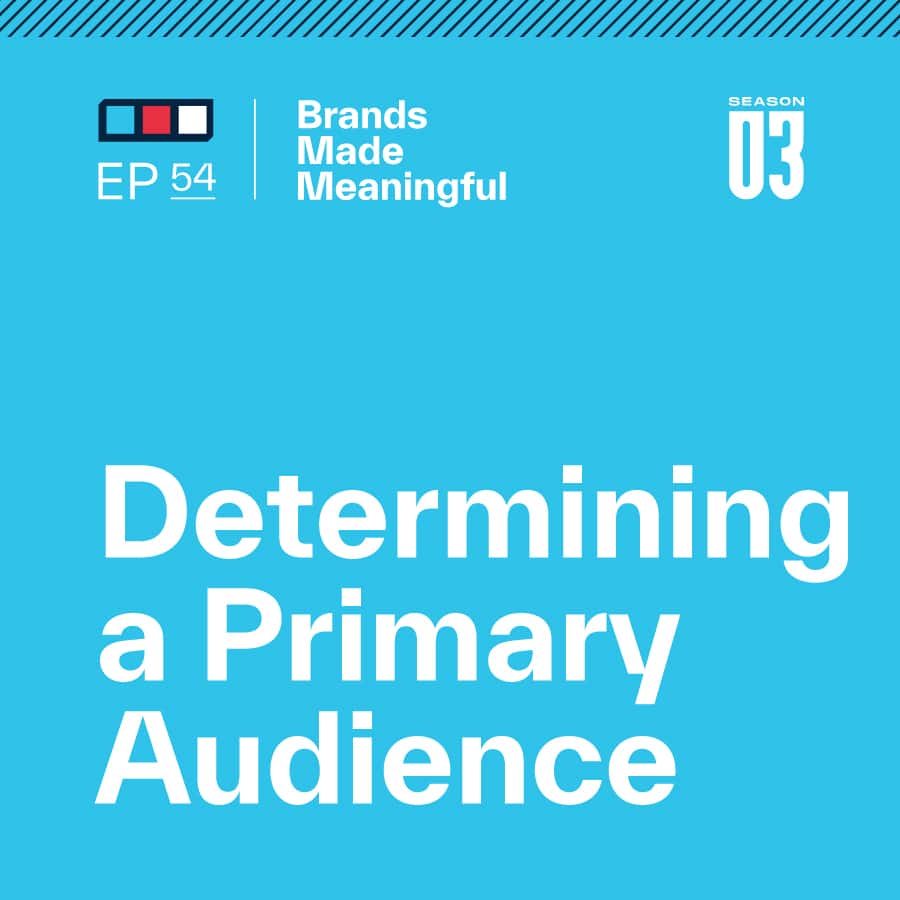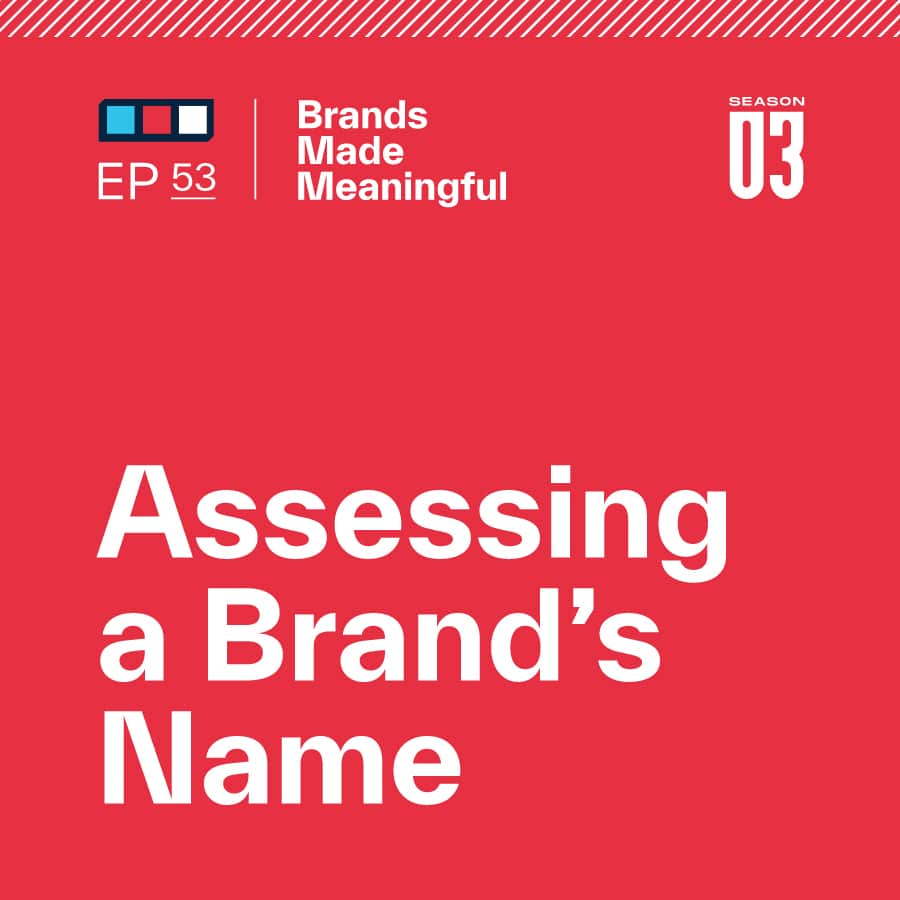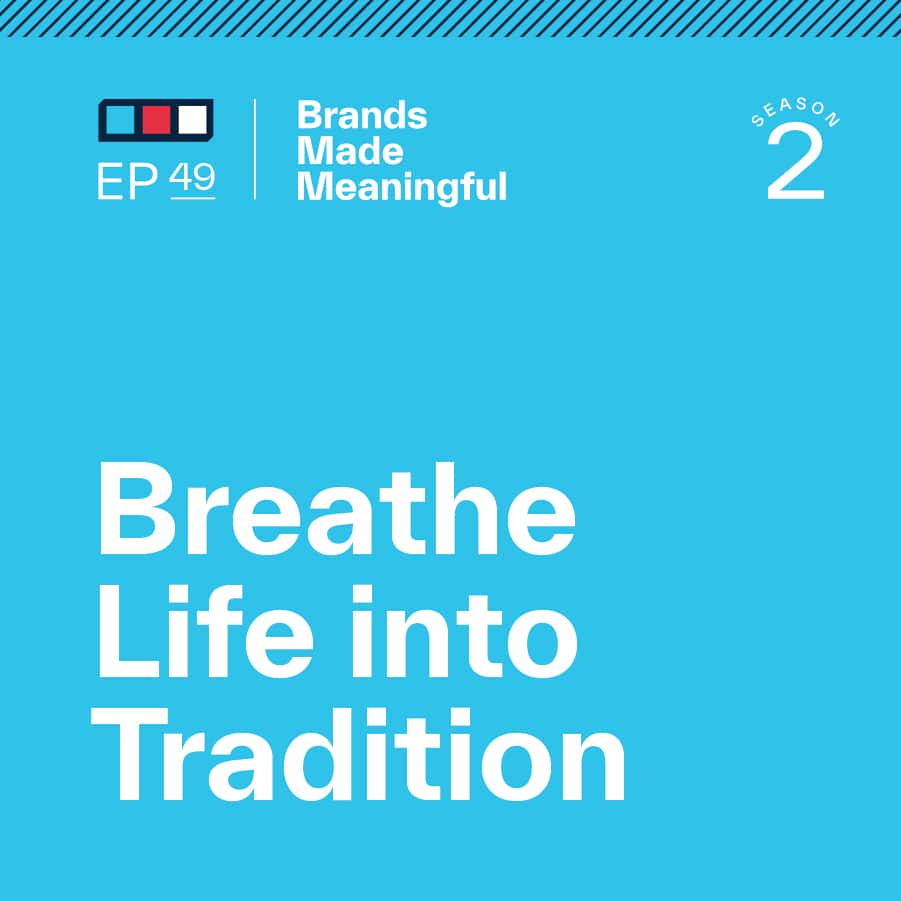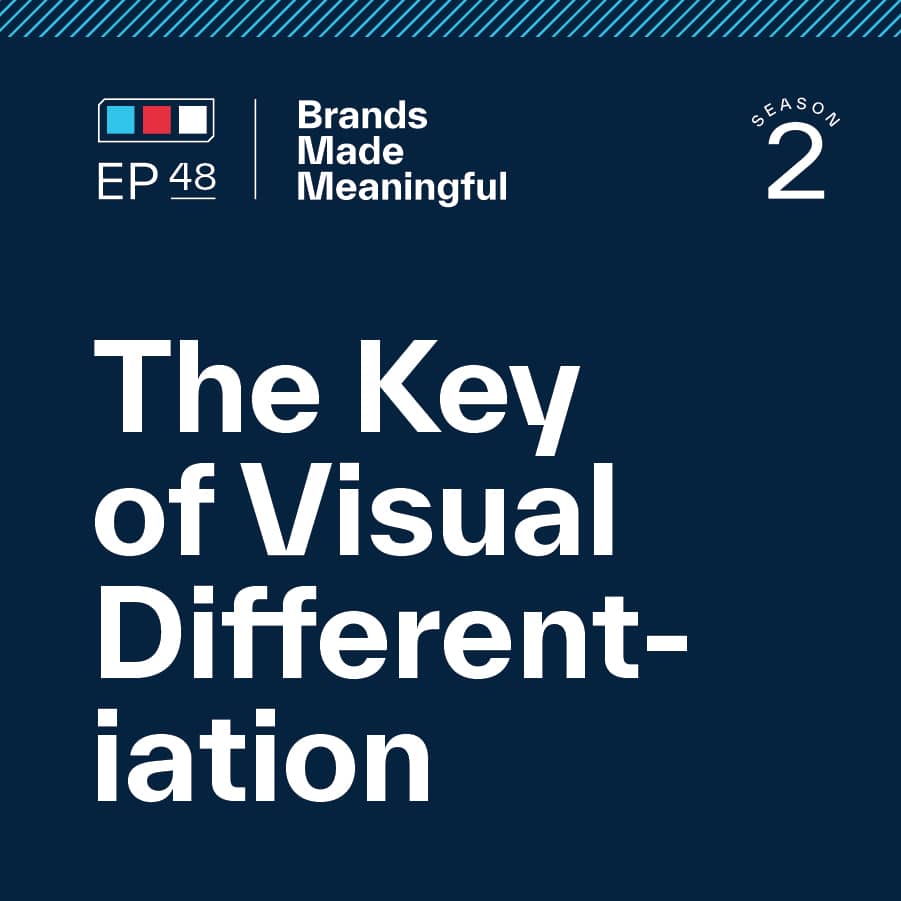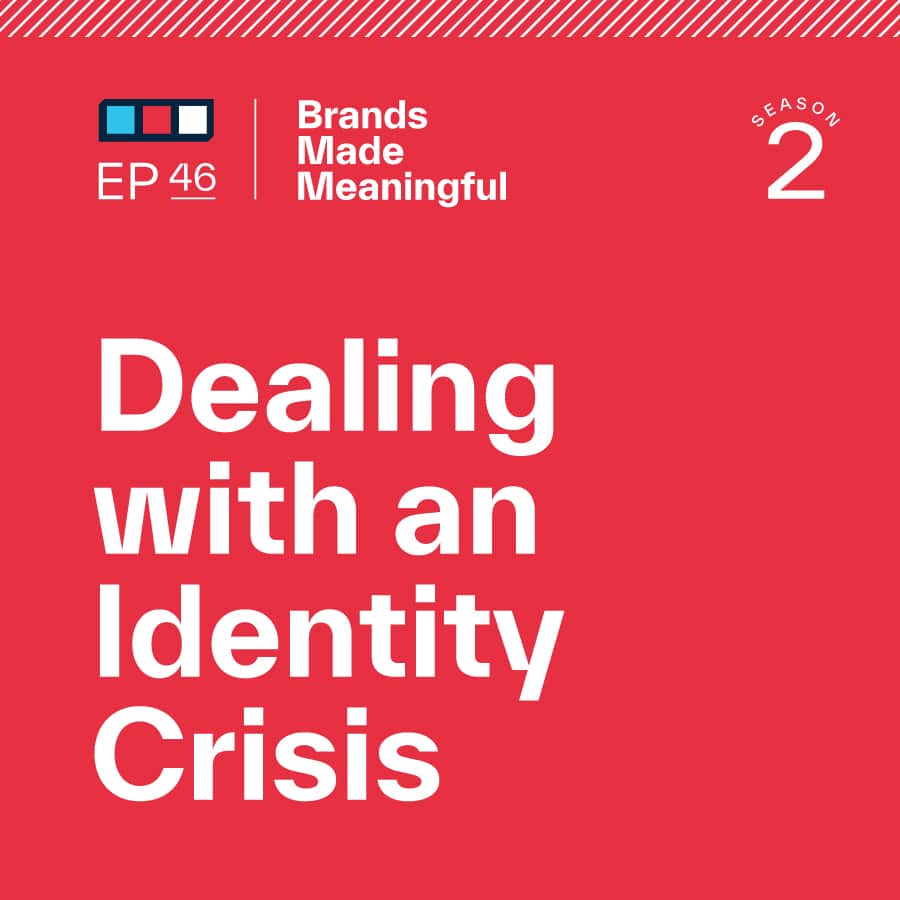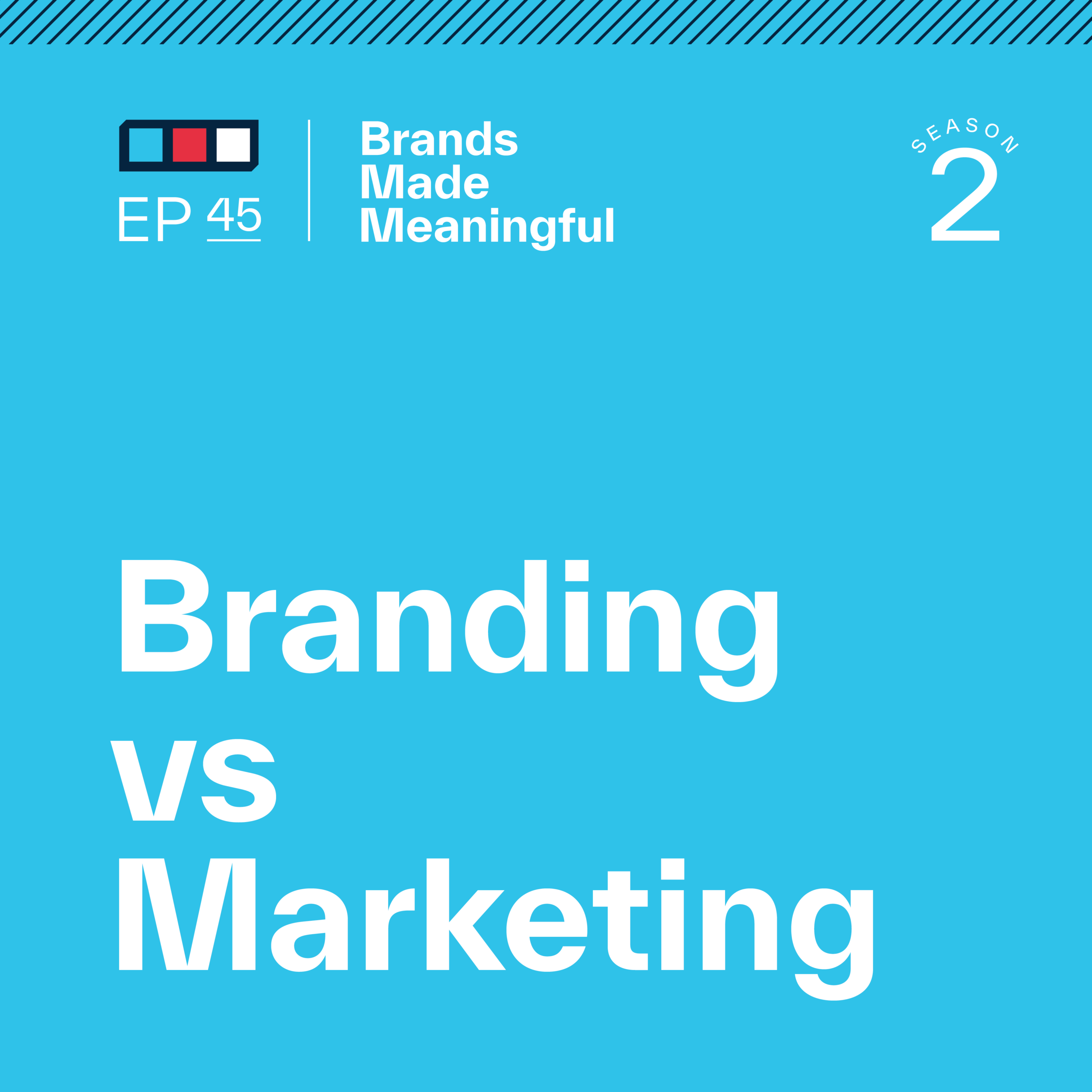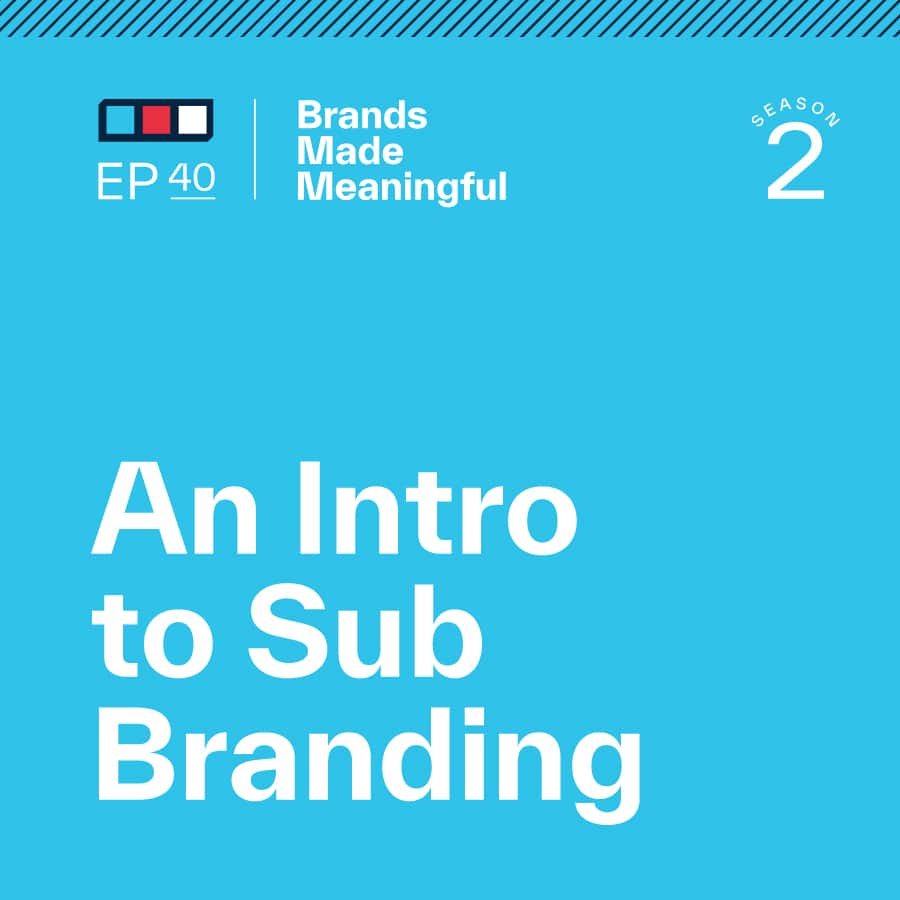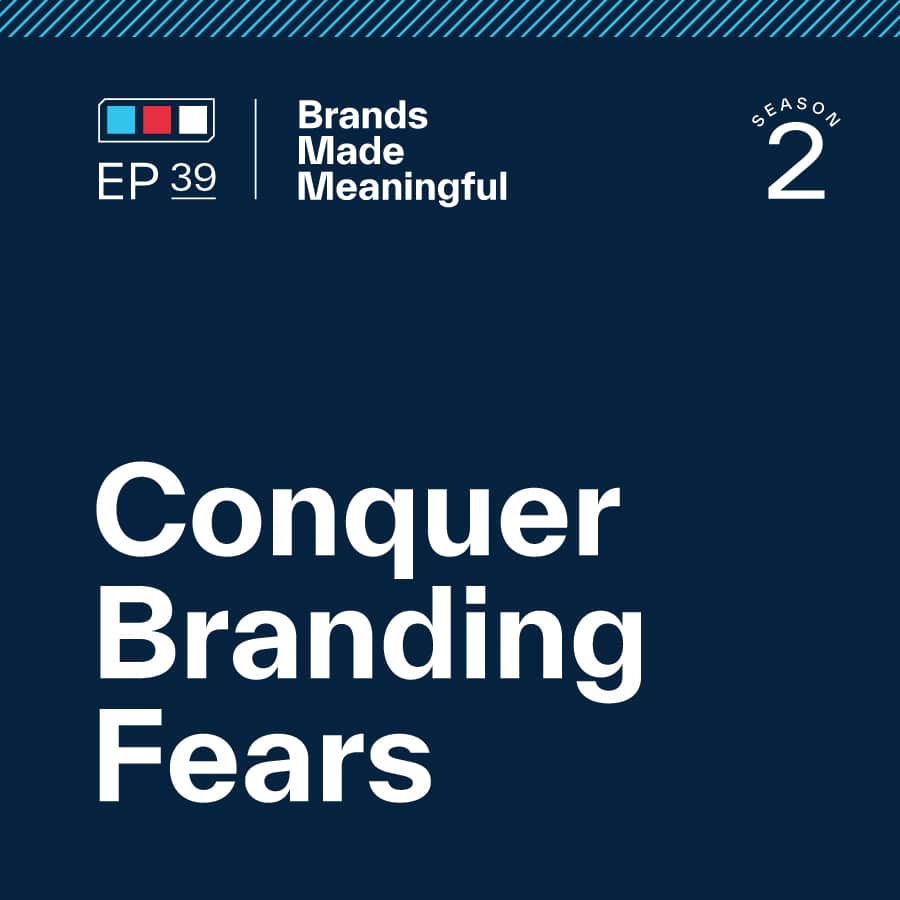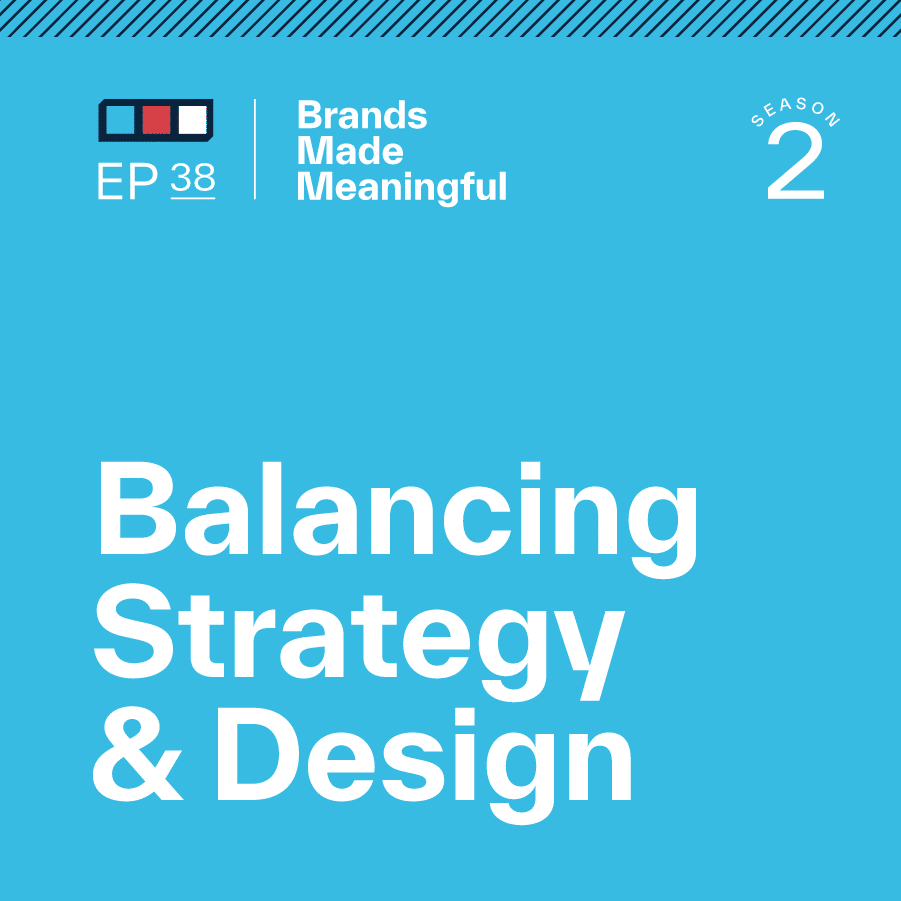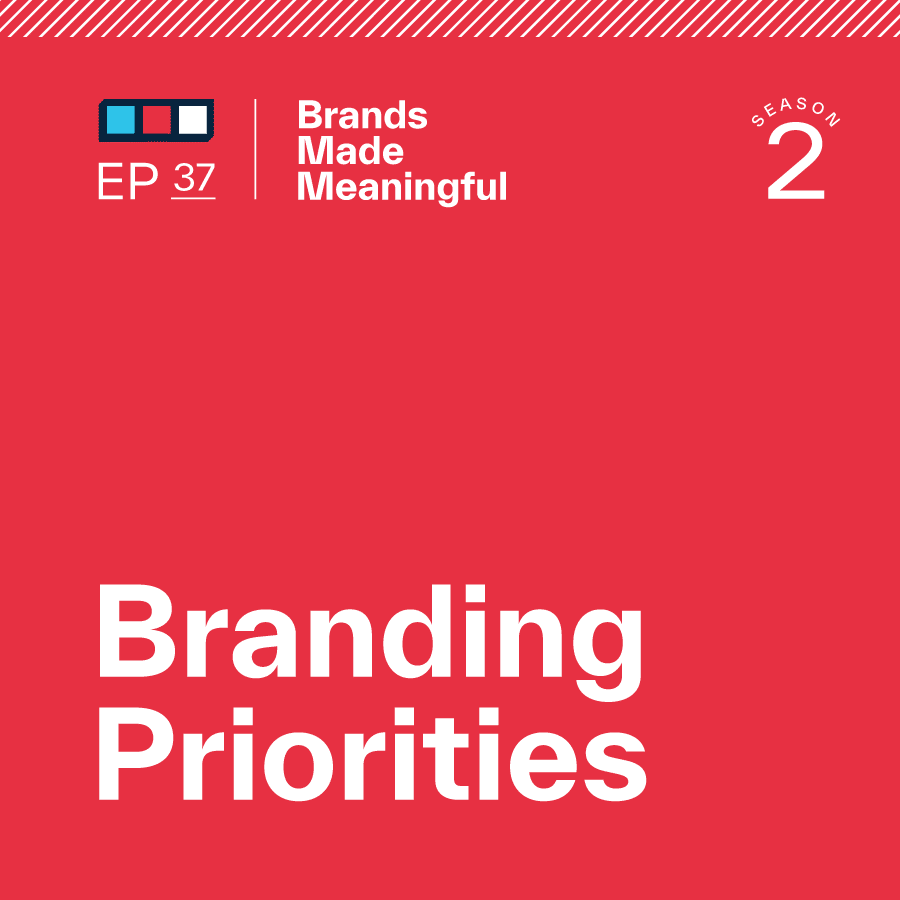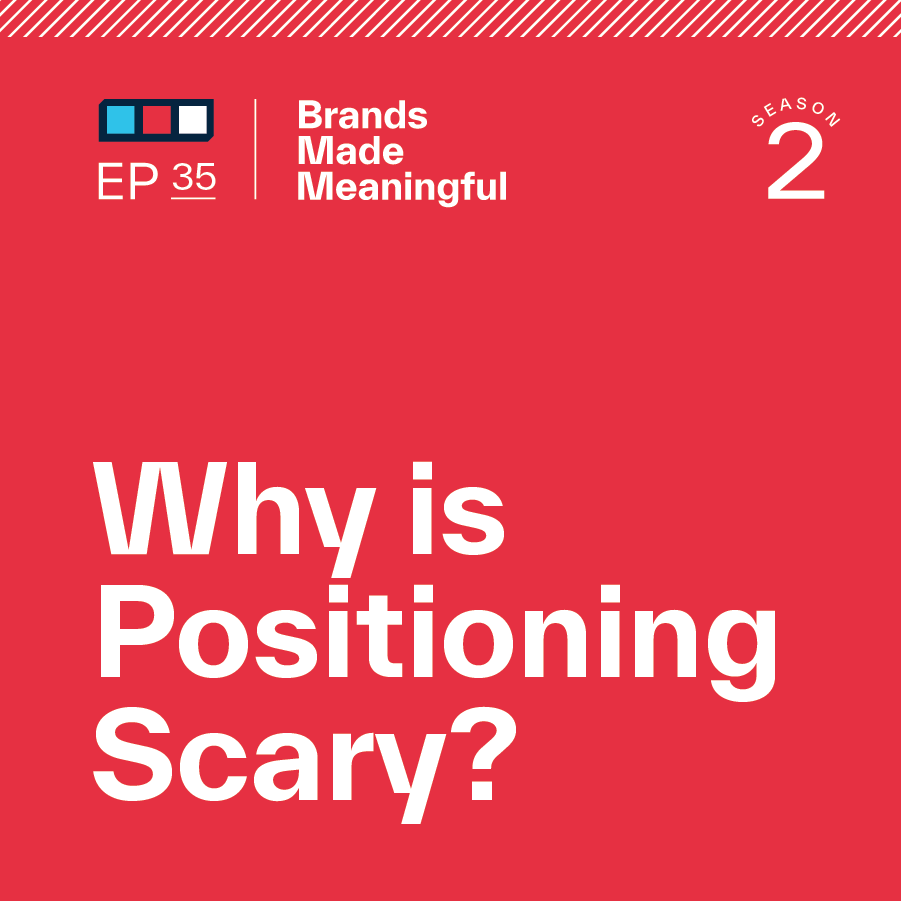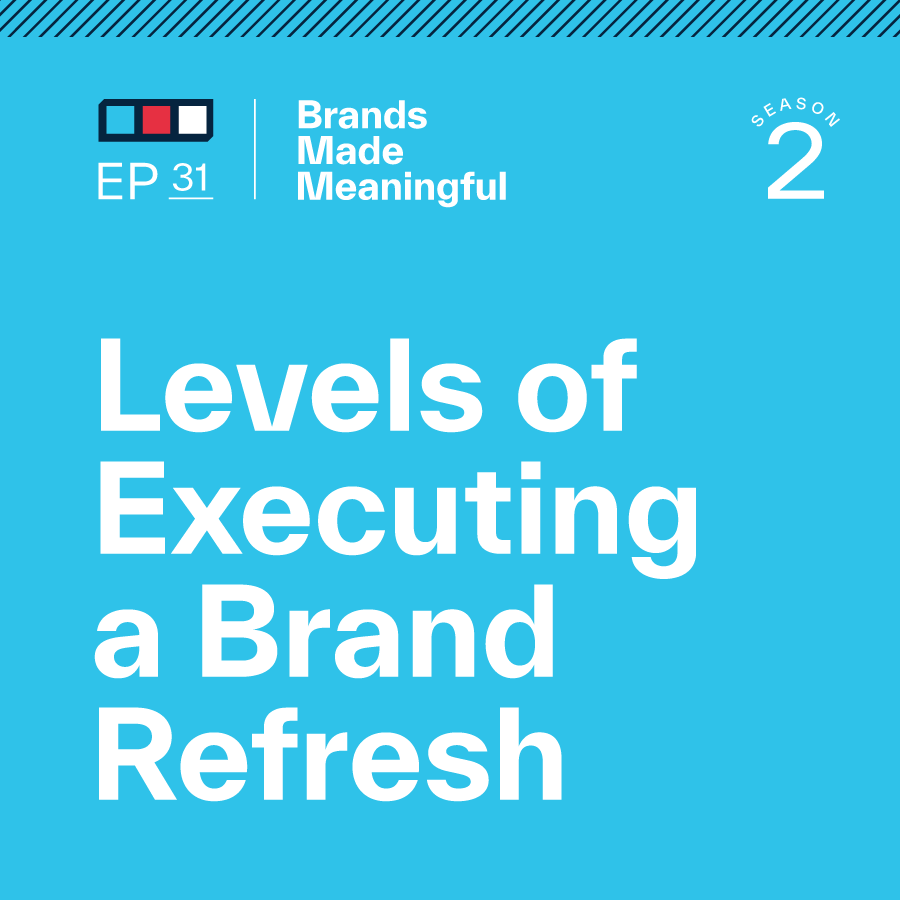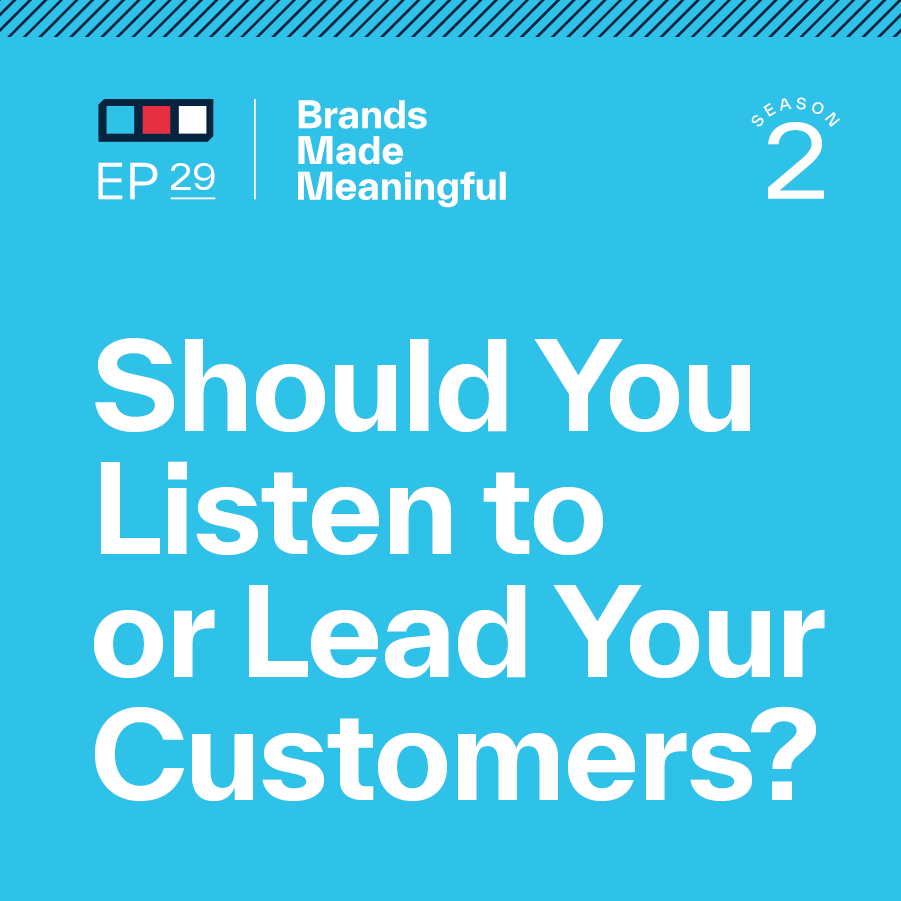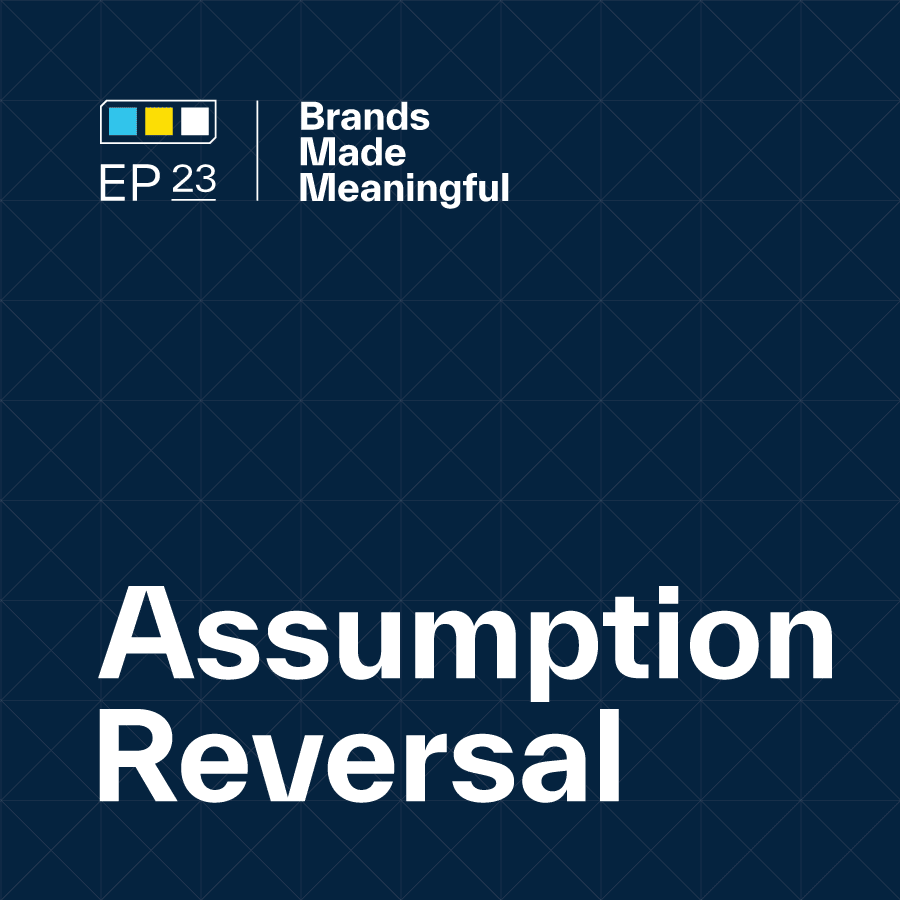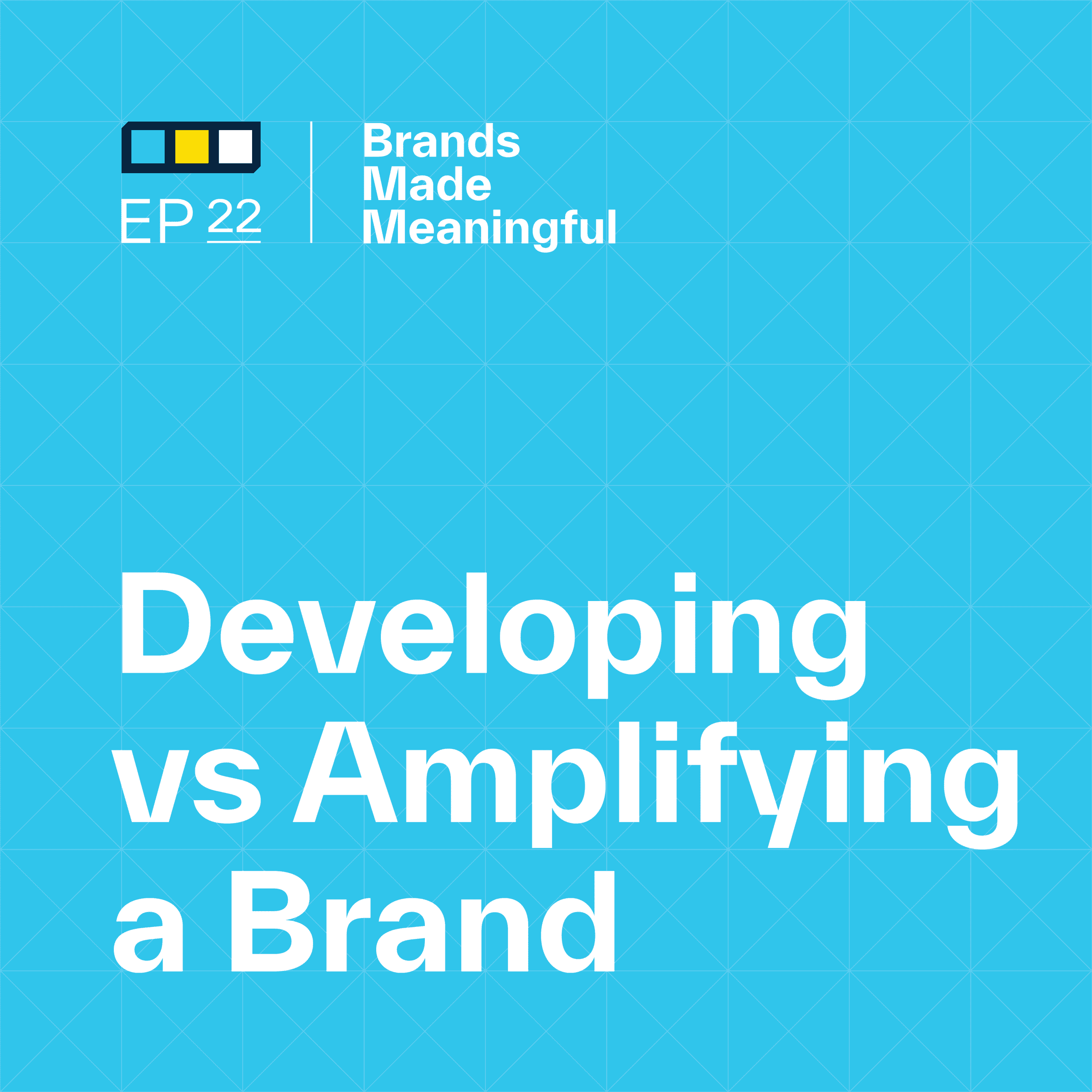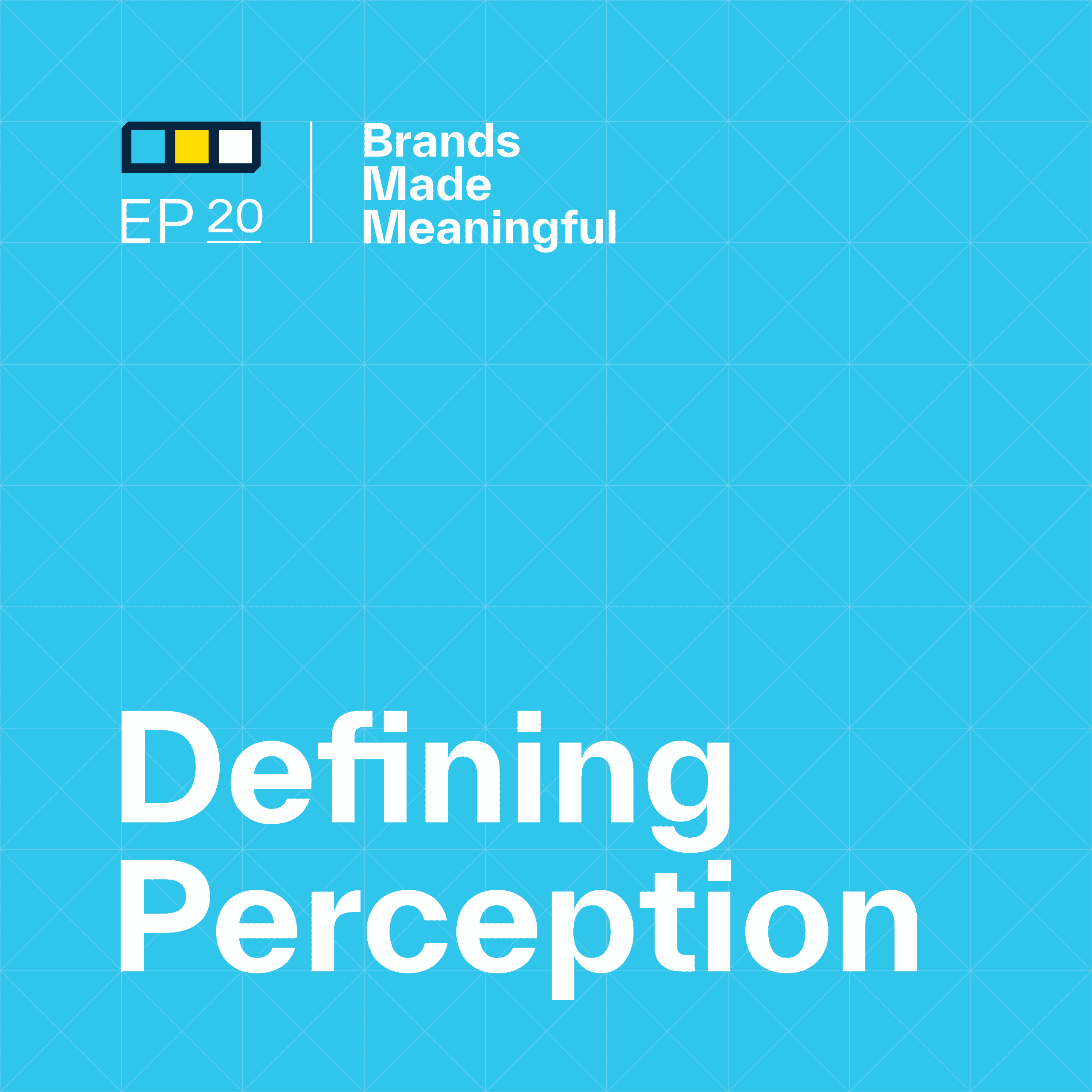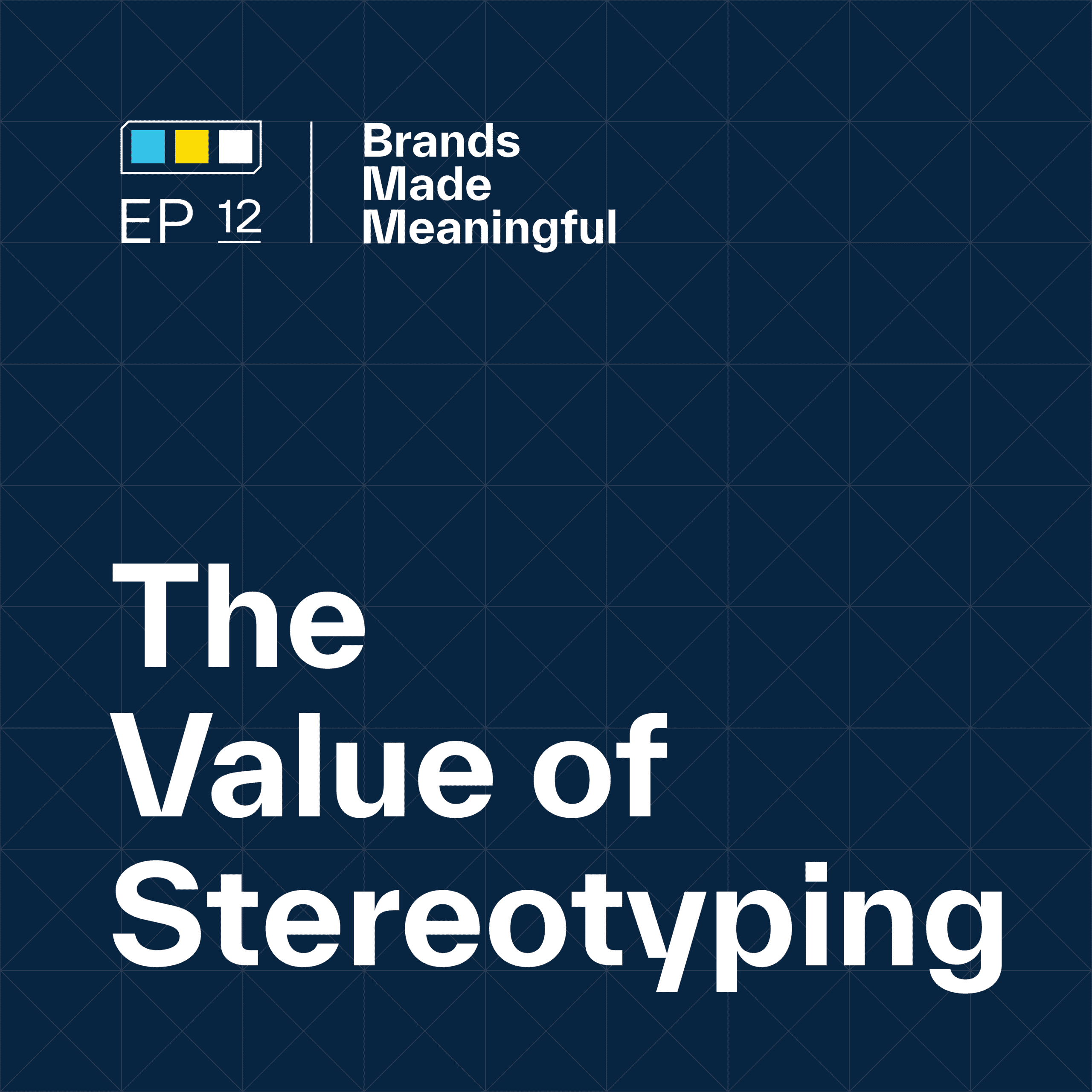EPISODE 91

Brand’s Role in Club Marketing
Episode 91
Derek and Tucker break down the importance of a strong brand for marketing your club in order to attract right-fit members.
EPISODE TRANSCRIPTION
A lot of our clients come to us and say, “We’re a high-end club, we’re really exclusive, we don’t want to shout, we don’t want to be loud, and we don’t want to be energetic.”
Tucker And I say, that’s not what exclusivity means. That is, for us, exclusivity should be felt instantly, not explained. It’s not about turning away all of these people, but it’s really about inviting the right people in.
Expand Full Transcript
Tucker Like you’ve said before, exclusivity is really about a narrowed position. It’s really about figuring out who you are for and building something only for them. And think about exclusivity as not, oh, here’s our audience, and think about it in terms of demographics. It’s not like, oh, well, we’re going after a 47-year-old man who has two kids and works in finance. Well, that might be one way of looking at it, but there are so many people who are like that. We need to build something that emotionally tailors to them, their needs, their desires, and how that all kind of shapes.
Derek We’ve had this conversation several times with clubs that we’ve worked with who are exclusive, who want to be exclusive, and they want to retain the right to choose more of the right type of people who support their culture. But their fear is that they’re going to come across as being perceived as elitist, which they don’t want to do. So we just want to kind of like clarify our definition that exclusivism and elitism are two very different things. An exclusive club can be private or it can be selective. By the nature of a private club as a private organization, you get to be selective to ensure you’re maintaining whatever it is, that member experience, that’s important to you, versus thinking of an organization as elitist, where it looks down on or is intentionally exclusive or excluding people in some sort of unfair way. So I just want to make sure our definition is geared towards choice and positioning, and being on purpose.
Tucker And where we cross that bridge a lot is if there is the right person out there, and they do come in, they should feel warmth. They should feel that welcoming approachability because they feel like they fit in, and not necessarily from a demographic standpoint. You could have a 65-year-old and a 35-year-old come into the same club and feel like, Yes, this is for me. That is our goal, not necessarily to say, Oh, this is only a club for 35-year-olds or only a club for 65-year-olds but understand the psychographics, what makes you tick, what do you really like, are you more of a soda person or a wine person or beer person, or how do you fit into our culture, and then go and find those people and make this really attractive for them. So what this comes down to is we have to start thinking about clubs in terms of, yes, they have a sophistication to them, they have a lifestyle to them. Members want that lifestyle, that sophistication, but lifestyle is all different. We like to think of it less like a private museum and more like a private playground, and some are more like private museums. But that playground for us is to say, what are they looking for? What kind of recreation are they looking for? What kind of enjoyment? Are they looking for more leisure? Are they looking for more of a relaxed vibe? And then we build the brand around that. We don’t necessarily need to always default to something that might feel untouchable or stuffy or so premium that it’s clearly trying to look as expensive as possible just because, and that’s not necessarily going to be the most successful result.
Derek So let’s break that down. Let’s unpack how clubs can be choosy, they can be discreet, they can be exclusive, but they can also be vibrant and, dare I say, fun and playful. It’s up to them. It’s up to you and how you can be both, and how the creative process brings that balance together for that club’s brand.
Tucker Let’s start with the overall direction. For us, exclusivity is a feeling, not a style. So, exclusivity is how we make people feel. It’s not necessarily a default way that we look or sound. So that’s not necessarily just achieved by being minimal or kind of using a balanced color palette that’s all silver and white or something like that. For us, it’s all about intentionality. It’s about cultural awareness and confidence. And so, how we do that is by narrowing our brand really, really intentionally to say, Okay, we are this type of club. This is who we are. And it doesn’t mean that it’s all the same, but it’s easy for you to articulate as a club who you are and who you are not.
Derek Yeah, you have to start there. You have to make that choice. You have to have the confidence in who you are and what you stand for. And, like you said, knowing who you are not so that then you can use branding to express that, to tell that story, to communicate that, to reassure the people that do belong to your organization that they’re in the right place, and to then, by its own nature, I guess you could be discouraging or just not even looking attractive to people who aren’t going to be the right fit without saying to them, You’re not the right fit.
Tucker When we talk about you’re not the right fit, I think a lot of clubs should be comfortable, and they’re not today. I can say that from experience. They are not comfortable with saying this isn’t for everybody. In the way of saying we’re going to try to make an experience that anyone would like, I would push back on that and say, you should make an experience in which someone would say, Oh, that’s not for me. That’s just not going to be my club. And that will create a deeper sense of belonging and a deeper sense of ownership around the people who it does belong to. And the experience that they feel is not going to be for everybody. And being comfortable with that is a really, really ambitious and difficult step for a club to make, considering all of the different offerings that they see. I mean, I can’t count how many times we start a project where someone says, I want to be Augusta National. And I would say, that’s fantastic. But that might not be the membership that you’re trying to attract because that’s a very specific membership. And they have very limited things that they have to offer. And you might want to admit this, but not everyone would want to be a member of Augusta National because they don’t really know what the experience is there. It’s very different than maybe your standard club experience.
Derek There’s also the difference between exclusive and luxury. I think that exclusive is a really interesting descriptor. And I love the different ways that it can be defined. Some people miscommunicate, or think about it as a luxury brand, and they say, Well, for us to be exclusive, we need to be like Augusta, or we need to be like the Ritz-Carlton. Or they’ll describe luxury brands, luxury products, luxury hotels, thinking that that’s what exclusive means. But then they end up with a look and a feel and a palette and language and colors, et cetera, that might feel appropriate for a Michelin restaurant, but not for a club in southwest Florida where people go for their favorite four months of the winter to vacation. Those aren’t the same thing. So, to define what exclusivity to you is, and maybe that is luxury in your case, back to what you said, knowing who you are is where it starts. And then we can help create those materials that members truly will be proud of to say, yes, this brand represents where I belong and where I love to be part of.
Tucker Right. It’s an extension of themselves in theory. And so when we look at getting into the technical side of creativity and that expression of it, so like fonts and color palettes and the way that you write your voice and the naming of your restaurants or different nines on your golf course, they can all signal things. But if they’re all just leaning to the default golf longevity and prestige, that can sometimes feel generic. It can also feel very irrelevant to the people that you’re trying to make feel like they belong somewhere. So think about these subtle cues. And we’ve talked about this before, but it’s like what we do is a very custom luxury suit. It doesn’t have to only be black jacket, black tie, black pants, black shoes. It can have a sense of sophistication while still having character to it and really having a sense of personality to it that makes them feel, yes, OK, this is for me. And a great brand does that. If you’re exclusive, if you’re truly exclusive, would your members be really proud to wear a hat from your pro shop or impress a guest with just the email that comes through email and says, oh yeah, this is just our general email, would that represent the type of personality and vibe that that person wants someone to really see of them and say, oh, yeah, this represents me. I go back to your example of a club down in the Palm Springs area, where you said it’s the most exclusive club that you’ve been to in a really long time, but there is no formality when you go there.
Derek Yeah, shirts untucked, hats on backwards, gym shorts on the golf course, because they’ve chosen that that’s the vibe and the energy that they want, where they go to play, to relax, to socialize. It kind of caught me off guard. Every time you have the pleasure, the benefit, and the opportunity to visit a different club somewhere, you kind of go in on your best behavior. And there’s, I think, some certain default etiquette standards that you just assume. And then when you experience a place where they say, No, the energy here is this, it’s a little shocking, and it’s incredibly refreshing. It’s incredibly refreshing to see a club say, This is what we are. We’re not for everybody. But for the people that we are for, this is a place for you.
Tucker It’s this sense that this is not for everybody, and that means x. And so that energy must match the experience, but at the end of all of this, clubs are a place of leisure and connection and joy and recreation, and that’s where people go to kind of get away from it. And it shouldn’t feel like work being at your club. It should feel like a place where you have a sense of personality and yourself. And so that brand expression must reflect that. And without it, you really risk feeling cold, irrelevant to a certain group. If you’re starting just to blend into the standard club norms, then you risk this idea of being seen as just another club. You’re just another country club. We know what you are. We can guess your experience from a mile away. And sometimes that’s actually totally fine. But most of the time, that makes them struggle to get the next generation.
Derek Yeah, being exclusive does not mean being expensive. That is not a one-to-one correlation. We’ve talked with clubs that, compared to initiation fees of average clubs, either in their area or across the country, are very, what I would call, either affordable or not expensive or outpriced. But they have a very limited number of members that they bring in. By choice. So again, exclusivity does not mean elitism. And I don’t think exclusivity means expensive. I think it means, like you said, defining that personality, embracing that personality, and not just saying, well, because we’re exclusive, our brand needs to be cold, or look exactly like somebody else’s. When a brand is that exclusive, and it’s made that choice, there’s something super special and super custom, and purposeful about them. And the opportunity they have to tell that story in a way that helps them, that’s unique, that differentiates them, it’s ripe. It’s right there for the taking.
Tucker If people are listening to this and say, All right, Derek, I get it. Stop talking. I understand. Just because we’re exclusive doesn’t necessarily mean we have to be stuffy. I understand that. I get it. I would then look at what I can do. How do I understand that this is an opportunity for me? Or I’m done listening to this. I get out of my car, I walk into the club, and I go, All right, what are we doing right or wrong? How do I test this?
Derek I think there are two ways. One is by asking ourselves, testing as to whether or not our brand, our club, feels exclusive to us. Is there a feeling and a sense of exclusivity with regard to our brand, to our members? So it’s asking ourselves. I know clubs do surveys, member surveys, and member satisfaction surveys on an annual basis, but I wonder if they’ve ever actually asked this question. We are working to be a very exclusive club. Ask your members if they’re feeling it. I think that’s the first step.
Tucker Exclusive, meaning you can’t go down the street and get the same experience for the same price. Sometimes it’s even across the street to the club, quite honestly, across the street. And say, do they have the same experience? Are they doing the same thing as us? Exclusive means belonging here means something different.
Derek I think the second one is that as we look out and determine whether or not our brand and that personality and the reputation that we have, if it is inviting and at the same time, detracting the right type of people. So as you’re getting interested, prospective members, are the majority of them the type of people that you think would be the right fit, would grow your culture, and would enjoy that lifestyle and that experience? I think if you’re attracting the right type of people, then you’re probably doing it well.
Tucker My favorite part when we start work with a club in a certain area is when we always ask them, So tell us about the clubs in the area. What do you think about them? And there’s almost always one club that someone says, Oh, I hate those guys. I hate them. They do this and they do x, y, and z, and they’re about this and they offer this. And oh my god, I just don’t like them at all. I don’t say this to them right away, but then I would say, They have a great brand then. Because they’re detracting from some people. They’re saying, No, you’re not for us. And I hope that we establish that here now. And they’re doing a good job because they have a sense of who they are, and they just own it, and they go with it, and they have no struggles with that at all. And then the clubs that are generally upset about that is because that club is not adhering to what they believe a club should be, or they believe that, and that’s okay. That’s like the best part about clubs, in my opinion. You’re for a community of 300, 500, or 1000 people, however big your membership is, and you would say, This is the community that we really care about. Let’s make this feel special. This should feel like our own place, not like I can go somewhere else and have this exact same experience. And so that’s a good thing, in my opinion.
Derek Yeah, this isn’t a consumer brand where you’re trying to attract anybody and everybody because everybody can drink your product or, you know, wear your socks. It’s the opposite. And I think that sometimes clubs are afraid that not everybody will love them or look up to them or respect them when you’re really only talking about, I don’t know, 200 members. Of the entire – whatever – world, if 200 people are all you’re really trying to provide a unique experience to, then let’s not worry about what everybody else thinks. Let’s worry about what they think.
Tucker Right. And I think that it goes the other way as well. Most of the time, when we talk to people, the default is, what do the next generation of people want? What do the younger people want? How does this work? How are we shifting for them? But I would also say, leave a little room for those people. Don’t just default to, What do younger people want? Let’s build that for them. But there’s a specific type of next generation for you. So when we work with a club that’s always had a black tie event to open their year, and they’ve always done that, and now they’re going, Maybe we should do a black-tie event. Maybe that’s just not who we are anymore. Maybe if that’s not who your culture is at large, you’d say, this just doesn’t represent us anymore. But if your culture is that you will attract younger people who are interested in that, if it’s for a reason. If the reason is just tradition in its own right, that doesn’t necessarily mean enough. Then to say, we do this because of y. And this is how we represent our culture. And this is a good chance for us to really do something new or something different. So think about it in terms of how do we not only appeal to the legacy members, but how do we make those legacy members proud and say, yes, this is our club. This is who we are. This is all about us. Then also signal that there is relevance and there is something for the next generation. To your point, if we’re a membership of 300 people, you don’t need to attract every person who’s 35, 45 years old. You need to attract 200 – not even. You need to attract maybe 50 or 100 of that next generation. You’re not trying to rebuild your club today. You’re trying to make sure that it feels relevant and that it feels really special for the next 50 years, rather than trying to change everything today because you’re scared of losing them.
Derek I spoke with a club just this last week who is in this exact same scenario. They’ve built a very small club. They’re going to max out at 200 members, and they have maybe 50 members to go. They know who they are. They know their story. And his question to me, and I’m going to kind of cue this up for you because I think it’s an interesting answer, was, But how do we activate that story? How do we tell that story so that we’re attracting those next 50 members? And he jumps straight to tactics. He said, Should we be on social media? Should we be advertising? Like, how do we activate who we are and what is unique and special about us so that we are attracting the right amount of people? How much of that should be done through referrals, and how much of that is outward? It was a really good question.
Tucker There are two things I always lean into. As a club, you’re never going to advertise. If you are an elite club or you aspire to be an elite club, you are never going to advertise. That is off the table. I would say that is a non-starter for me. You’re never going to do that. What we always focus on are two main things – expression and experience. And we go, expression, meaning how do we look? When someone lands on our website, how does that look? When someone goes into our pro shop, how does that look? When a member walks through the airport and they’re wearing a shirt of ours, what does that look like? And how do we express our culture uniquely so that the right person wants to stop and say, Hey, what is that? Like that’s really cool. I’m really interested in that. That’s expression, and how we talk about it, and all those great things. Experience, which I think is a huge part of this as well, is what is your dress code? What is the way that guests get acted upon? What are the key events there, and how are those functioning? When you talk about 150 members trying to get to 200 members and figuring out the 50 that really make this place shine, your best case is by turning guests into members by impressing them through expression and experience. And if we can do that right, I tell almost every one of our clients, your member/guest is the advertising that you do for the next generation of members. Your member/guest, the biggest event in most clubs’ calendar, represents a demo day. It is a trial run for almost every aspiring member of your club. And so that is your opportunity to pull out the stops, and that is your opportunity to impress them with not only service but also apparel and impress them with the food and impress with the experience and the vibe, and then I would point back to your last point and go, the vibe that you set there represents how they feel about the club and if they feel like they belong there or not, or if they should belong there. And that goes a long way to doing a lot of goodwill, good work towards growing your membership over years and years of building that perception.
Derek I think you could make the case, maybe this is the name of this episode, but I think that expression and experience is how we define exclusivity.
Tucker And balance is key, right? So, too much polish, too much elitism in that mindset makes it feel unapproachable, makes it feel to the point where it’s like, well, I don’t belong here. Too much energy, too much down the other route, makes it feel like, wow, this is not as nice as I wish it was. And so balance is key. And understanding what your balance is is the key to this problem. And saying, our expression, our experience needs to be flexible, needs to have things in which we say, Hey, maybe the rules we have on the golf course are really polished and really kind of stingy on how we do things. But our dress code is not at all. And to balance those things and say, Here’s what we believe here. Or maybe it’s the other way around. Maybe you dress really well, but it’s really casual on the golf course, and people can play music, and people have theirs. So there’s this level of every experience shouldn’t feel like a typical country club experience. That is what I would say is a failing model for a club that wants to feel elite, or it wants to feel premium, or it wants to really kind of rise above the rest of the market. If you were just defaulting to what you could find in a stereotypical movie about country clubs, then that probably won’t be a success in building something that stands out. You do want to bother the people down the street. You do want to make them feel like, oh, this isn’t for you. And that makes you special. And that’s what makes you really stand out in the marketplace.
Derek Finding that balance is part of the solution to maybe one of the most common questions that we get asked by clubs and GMs, which is, how do we balance attracting and engaging younger and newer members in the future generation, while also respecting, honoring, and continuing to engage our legacy members, our longtime members, our older members, and to not be all for just one or the other, but to find that right blend? I think part of this exclusivity then pivots to inclusivity. So once you have these members, by fostering that experience to be one that is inclusive once they are a member, and continues to rejuvenate their excitement and energy and passion and emotion for belonging, that’s the ultimate task.
Tucker So as we close here, I think the big takeaway for me, and we talked about experience, we talked about expression, we talked about all those things, but to me it’s that luxury isn’t static. It evolves over time. What was considered premium, high-end, luxury, exclusive 50 years ago, isn’t what is going to be that today. And that means that discretion doesn’t mean you’re silent. It means that you’re confident in what you believe. And it’s not that fun is a bad thing. It’s why members join. And it’s, what is our source of fun? There have been plenty of clubs where we go to where they say, We’re really fun. And I would go, yeah, you’re fun for you, but you wouldn’t be fun in my definition. But fun is their own personal definition. And so being exclusive and being elitist is not the same thing. And being really thoughtful around who you are and getting it right and expressing that uniqueness is the ultimate goal.
Derek I think when you can get to asking if our brand here at our club feels as good and evokes the right amount of emotion as the experiences that we are working to deliver, then you’re doing it right. And if not, then it’s time to take a step back, maybe have an honest audit of what you are doing and what your opportunity is so that you can close that gap.
Tucker Yeah, clubs that are going to be the next best club in their marketplace or even in their region or the nation are the ones that express exclusivity through relevance, not rigidity. And it’s all about coming back to who our members are. What type of person do we want to attract here? And what kind of experiences do we want to have? And then how do we express that so that those people are attracted and we get their attention and we allow them to come through our gates and really feel like this place is for me.
Derek Thanks, everybody, for tuning in. We will see you next time here on Brands Made Meaningful. Thanks again. Sussner is a branding firm dedicated to helping make a meaningful mark, guiding member organizations into the next chapter of their story. Learn more at sussner.com.
More Episodes Like This
Club Culture Drives Member ExperienceEpisode 95
Derek and Tucker discuss how to strengthen your club's culture through brand analysis and member perception.
Brand Through the Eyes of a Marketer and Member with Amy DaileyEpisode 94
Derek and Tucker are joined by Amy Dailey to discuss the intersection between club branding and marketing from the perspective of a member.
Why Great Clubs Still Struggle with PerceptionEpisode 93
Derek and Tucker discuss the intricacies and challenges of creating and maintaining perception in the private club industry.
How Course Architecture Shapes Club Identity with Drew RogersEpisode 92
Derek and Tucker are joined by Drew Rogers, a seasoned golf course architect, to explore the intricate relationship between golf course design, identity, and culture.
Brand’s Role in Club MarketingEpisode 91
Derek and Tucker break down the importance of a strong brand for marketing your club in order to attract right-fit members.
Taking Care of the People Who Take Care of People with Craig PrattEpisode 90
Derek and Tucker are joined by Craig Pratt, co-founder and board chair of the nonprofit organization Holes Fore Hope.
Reviving New Member InterestEpisode 89
Derek and Tucker explore options for generating interest among prospective members and inspiring them to join your club.
Brand Through the Eyes of a Club Manager & Consultant with Chris CoulterEpisode 88
Chris Coulter, Vice President of Club Consulting with the McMahon Group, joins Derek and Tucker to discuss the intersection of branding and consulting in private clubs.
Evolving Member ExpectationsEpisode 87
Derek and Tucker dive into the differences between generational club members, their wants and needs, and how to balance out expectations across the board.
Winning the Talent Game with Tom WallaceEpisode 86
Tom Wallace of Kopplin, Kuebler, & Wallace joins Derek and Tucker to discuss the importance of a club’s brand in hiring and retaining right-fit employees.
Reclaiming Reputation Through Brand RevitalizationEpisode 85
Derek and Tucker discuss the potential that a branding initiative can have to restore a club’s reputation.
Branding The Club with Don KovacovichEpisode 84
Don Kovacovich, GM of The Club at Golden Valley, joins Derek & Tucker to discuss the impact that rebranding has had on his club and the opportunity it presents for other clubs
Changing a Club’s Membership ModelEpisode 83
Derek and Tucker discuss key considerations and challenges when changing your club’s membership model.
Connecting a Club with its Story with Jackie CarpenterEpisode 82
Derek and Tucker are joined today by Jackie Carpenter, author of People First.
Branding a Club AnniversaryEpisode 81
Derek and Tucker discuss the unique opportunity presented by milestone and anniversary dates for private clubs.
Private Club Storytelling with Ricky L. Potts, Jr., CCMEpisode 80
Derek and Tucker have the pleasure to speak with Ricky L. Potts Jr. about how powerful storytelling can be for your club members.
Opportunity in Club Facility RenovationEpisode 79
Derek and Tucker discuss pivotal key moments in your legacy and how to transform your story through renovation.
The Evolution of Club Members with Jon LastEpisode 78
Derek and Tucker are joined by Jon Last from Sports & Leisure Research Group to discuss the evolution of club members.
Member Branding vs. Product BrandingEpisode 77
Derek and Tucker discuss the challenges their client's have moved through when approaching differing styles of branding.
The Role of a Private Club's LogoEpisode 76
Derek and Tucker take a look back on private club logos they've designed over the years and explain the strategic reasons behind their choices.
Club Brand GovernanceEpisode 75
Derek and Tucker divulge the steps to evolving your brand while retaining your core values.
Seasonal Member MerchandiseEpisode 74
Derek and Tucker take a look at crafting specific merch to celebrate landmarks and special times of the year.
Who is Sussner?Episode 73
Derek and Tucker take a break from talking shop to talk about who they are and what they stand for.
Club Identities Beyond AmenitiesEpisode 72
Derek and Tucker discuss what it takes to stand out in unique ways for your club.
Little Things Mean EverythingEpisode 71
Derek and Tucker take a look at the often missed and easy to overlook.
Build Flexible Brand SystemsEpisode 70
Derek and Tucker break down the building blocks for long lasting branding.
The Club at Golden ValleyEpisode 69
Derek and Tucker take a close look at one of their recent rebrands.
When to Launch a Club RebrandEpisode 68
Derek and Tucker break down how to find the perfect timing when launching a club rebrand.
Steps to Launching a Club RebrandEpisode 67
Derek and Tucker break down the steps to take and the reasons why you should consider a club rebranding.
Brand Marketing vs. Brand DesignEpisode 66
Derek and Tucker define the line between marketing and design and how they intersect to inform one another.
Building Brand GuidelinesEpisode 65
Derek and Tucker show us how to build infrastructure guidelines to unify your brand experience across the board.
Club Identity SystemsEpisode 64
Derek and Tucker cover what Identity Systems entail and how to discern between internal and external methodologies.
Navigating Branding With a BoardEpisode 63
Derek and Tucker bring clarity to uniting your company under one cohesive vision.
Putting a Committee TogetherEpisode 62
Derek and Tucker assemble your need-to-know facts when putting together your committee.
The Guiding Principles of Private ClubsEpisode 61
Derek and Tucker go over the top ways private clubs can find the balance between pleasing old members while attracting new ones, all while making moves towards the future.
How Color Affects PerceptionEpisode 60
Derek and Tucker cover how to best convey your business with color.
Brand EcosystemsEpisode 59
Derek and Tucker break down how to craft effortless experiences when considering your brand as a whole.
6 Types of Brand TransformationEpisode 58
Derek and Tucker dive into 6 distinct types of transformations for a wide range of brands.
Tournament Branding For ClubsEpisode 57
Derek and Tucker discuss designing and delighting your club members with tailored events.
Brand Promoters & DetractorsEpisode 56
Derek and Tucker discuss how high level promoters increase your NPS and how to turn the tides on your detractors.
The Loudest Voices in the RoomEpisode 55
Derek and Tucker talk about gathering feedback while prioritizing every voice.
Determining A Primary AudienceEpisode 54
Derek and Tucker discuss if and when you should be honing in on your audience vs. casting as wide a net as possible.
Branding For ExclusivityEpisode 53
Derek and Tucker discuss the intricate process of naming your brand.
Measuring Brand SuccessEpisode 52
Derek and Tucker discuss how we measure our success in branding and a few key KPIs that help us understand our impact.
Branding For ExclusivityEpisode 51
Derek and Tucker breakdown how brands can create the perception that they are exclusive and only for a certain type of consumer.
What Makes A Brand SurprisingEpisode 50
Derek and Tucker break down the Sussner formula that we believe leads to a surprising brand.
Breathe Life Into Brand TraditionEpisode 49
Derek and Tucker discuss the intricacies and common pitfalls of branding for Private Golf Clubs.
They Key of Visual DifferentiationEpisode 48
Derek and Tucker break down the importance of differentiating your brand on a visual level.
Branding For Private GolfEpisode 47
Derek and Tucker discuss the intricacies and common pitfalls of branding for Private Golf Clubs.
Dealing With An Identity CrisisEpisode 46
Derek and Tucker breakdown how to identify and remedy a brand's identity crisis throughout thoughtful and intentional brand management.
Branding vs MarketingEpisode 45
Derek and Tucker discuss the differences between Branding and Marketing and how to make the two compliment each other.
Build Your Brand's FoundationEpisode 44
A brand's foundation is a critical element in being successful in the long-term.
Building a Constructive Branding ProcessEpisode 43
Derek and Tucker break down the steps required to build the most constructive and meaningful branding process.
What Makes a Brand Relevant?Episode 42
Relevance is a key piece of a brand's identity for creating clarity and connection.
Your Right to WinEpisode 41
Derek and Tucker discuss the “Right to Win” and the odds of your brand's success within your target market.
An Intro to Sub BrandingEpisode 40
Derek and Tucker discuss the nuances of developing sub-branding and strategies.
Conquer Branding FearsEpisode 39
Derek and Tucker dive into how to overcome the fear of change and the nature of constant refinement of your brand.
Balancing Strategy & DesignEpisode 38
Great strategy is a necessary foundation for great design—and great design brings great strategy to life.
Branding PrioritiesEpisode 37
Branding priorities are the actions and initiatives that shape or enhance a brand's identity, perception, and market position.
Invest in Your BrandEpisode 36
Investing in your brand benefits your company as a competitor in the marketplace, builds trust with customers, increases perception of quality, and drives employee engagement.
Why is Positioning Scary?Episode 35
Narrowing the brand's position is really a strategic decision to focus the brand's offerings, messaging and target audience on a specific niche or segment within the market.
What Are Brand Consultants?Episode 34
Derek and Tucker discuss the importance of hiring expertise with a wider breadth of knowledge than just visuals.
Hire for Brand FitEpisode 33
Hiring people that fit your brand is key in order to maintain brand authenticity, positive culture, and consistent messaging.
Your Brand’s Stance MattersEpisode 32
Your stance can help define your brand from a core level and make branding, hiring, and marketing not only easier, but more meaningful.
Levels of Executing a Brand RefreshEpisode 31
If you have a brand strategy in place, how do you execute it?
The Role of Features & BenefitsEpisode 30
Derek and Tucker discuss the importance of features and benefits within the context of branding, selling, and marketing your products and services.
Should You Listen To or Lead Your Customers?Episode 29
Within the challenge of any rebrand is the challenge of managing customers' perception of change.
Managing a Brand TransformationEpisode 28
Episode 28 discusses the highlights and challenges of rolling out a new brand, both internally and externally.
Living Your BrandEpisode 27
Your brand is not this shiny trophy on the shelf. It is something that you are molding every single day.
What Makes a Brand Authentic?Episode 26
Season 2 starts off with a discussion about building authentic brand experiences, both internally and externally.
Reviewing your Competition's CreativeEpisode 25
Derek and Tucker discuss the process of reviewing your competitors' creative strategy to better position your brand within the market.
Interviewing your Audience for InsightsEpisode 24
This episode details the process and benefits of interviewing your audience as part of the branding process.
Assumption ReversalEpisode 23
Derek and Tucker discuss how we change our thoughts and get into a different mindset to refine and revise our branding.
Developing vs. Amplifying a BrandEpisode 22
Another way to say it is, development is building and crafting your brand story, and amplification is then telling it.
Refreshing a Sporting Goods BrandEpisode 21
This episode shares the steps behind Sussner’s work in refining the Shock Doctor brand.
Defining PerceptionEpisode 20
Derek and Tucker discuss the positive and negative impacts of brand perception.
What is a Brand?Episode 19
Derek and Tucker discuss what defines a brand and what makes them successful.
Branding Golf Courses vs Golf ClubsEpisode 18
Derek and Tucker further hone in on golf course design.
Refreshing a Golf CourseEpisode 17
Derek and Tucker discuss the bar for golf course design – and how to push past it.
Let’s Talk Taglines Episode 16
Derek and Tucker talk taglines in today's episode.
Refreshing an Athletic DepartmentEpisode 15
Derek and Tucker sit down today to discuss what logos mean within branding.
Branding a Club Episode 14
Derek and Tucker discuss how to brainstorm branding a club.
An Intro to Internal Branding Episode 13
Derek and Tucker discuss the power behind internal branding.
The Value of Stereotyping Episode 12
Derek and Tucker sit down today to discuss the meaning of stereotyping within the branding world.
We’re on a Mission Episode 11
This episode digs into the rallying cry for the greatness your team is going to accomplish.
Aren’t Brands Just Logos? Episode 10
Derek and Tucker sit down today to discuss what logos mean within branding.
The Business You Are Really In Episode 09
Derek and Tucker sit down today to discuss how to discover what business you are really in to better understand your mission statement.
Clarity of Vision Episode 08
Derek and Tucker discuss the importance of looking ahead towards the big picture to better hone the purpose behind what we do in the now.
Branding B-2-B Environments Episode 07
Derek and Tucker discuss the Branding of Spaces.
It’s All in the Name Episode 06
Derek and Tucker discuss what a name can say - and not - about your company.
Delving Into Branding Data Episode 05
Derek and Tucker jump into the discovery phase of branding before it hits the drawing board.
Content Made Meaningful Episode 04
Today Derek and Tucker discuss the concepts within content and its common misconceptions such as the phrase "Content is King."
Brand Story vs. Brand Messaging Episode 03
Your story matters.
Visuals That Take The Cake Episode 02
Derek and Tucker sit down to discuss visual impact and what that could mean for your brand.
Are You Different or Distinct? Episode 01
It's not about being the only option, it's about being the right option. Join Derek and Tucker as they discuss Differentiation & Distinction.




